French Edition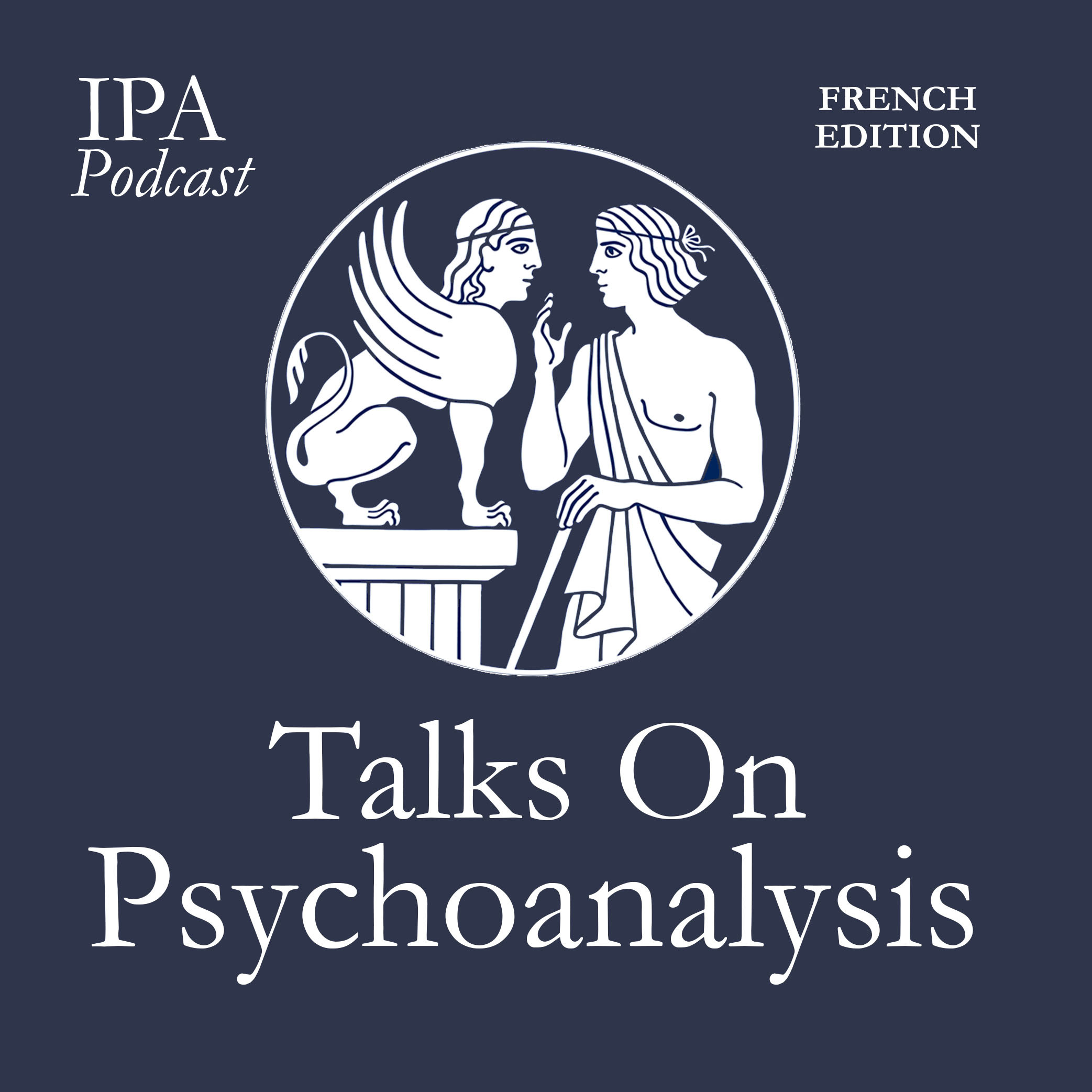 |
German Edition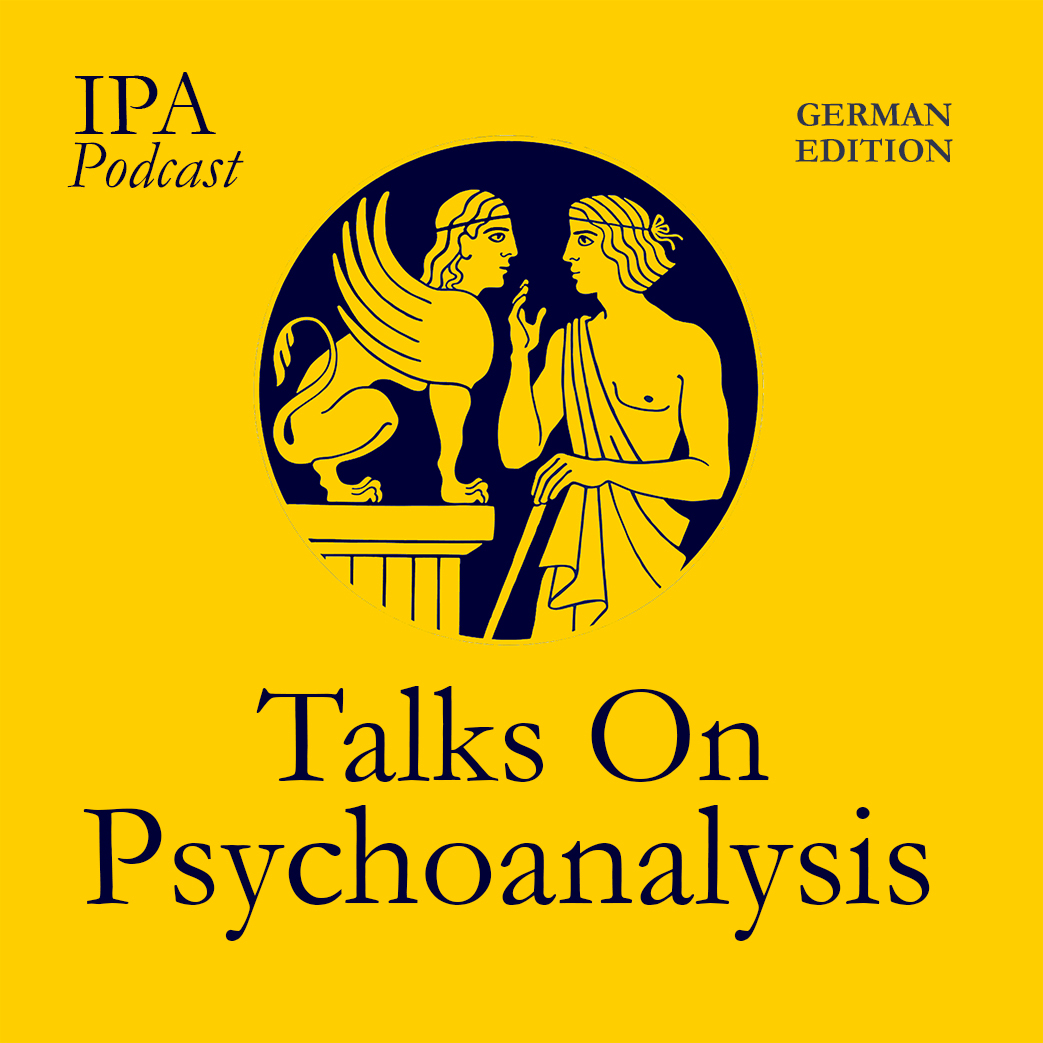 |
Spanish Edition |
Italian Edition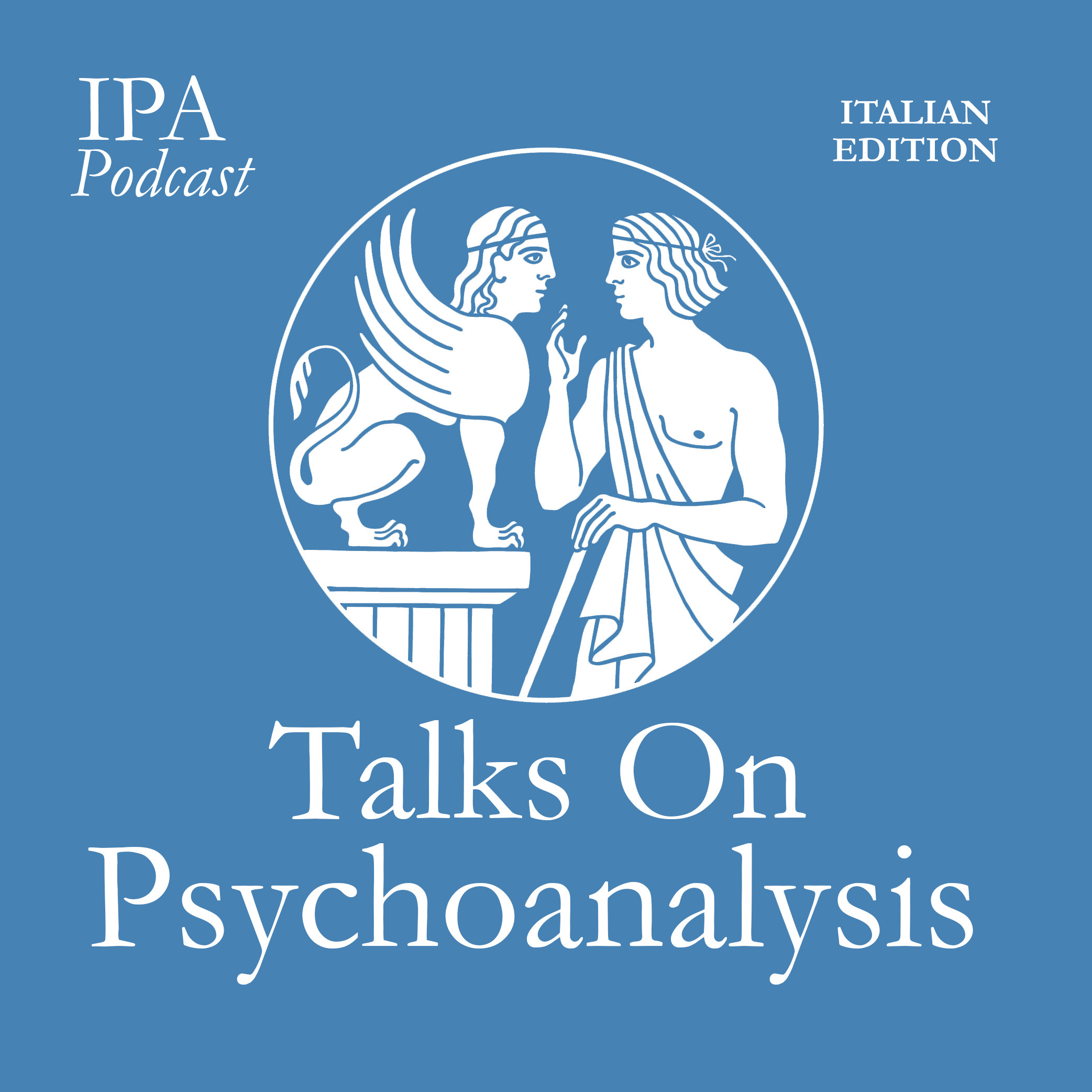 |
Japanese Edition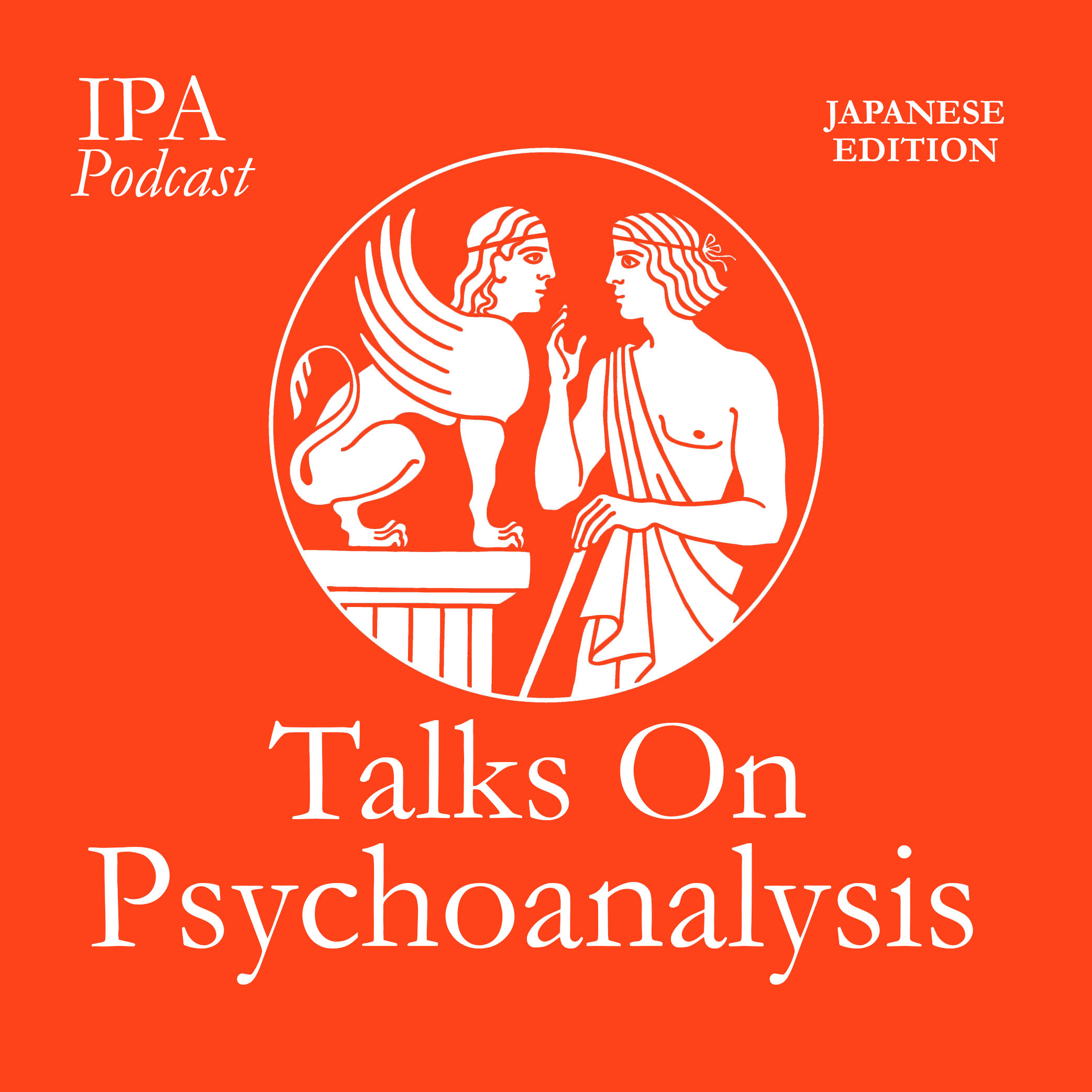 |
Portuguese Edition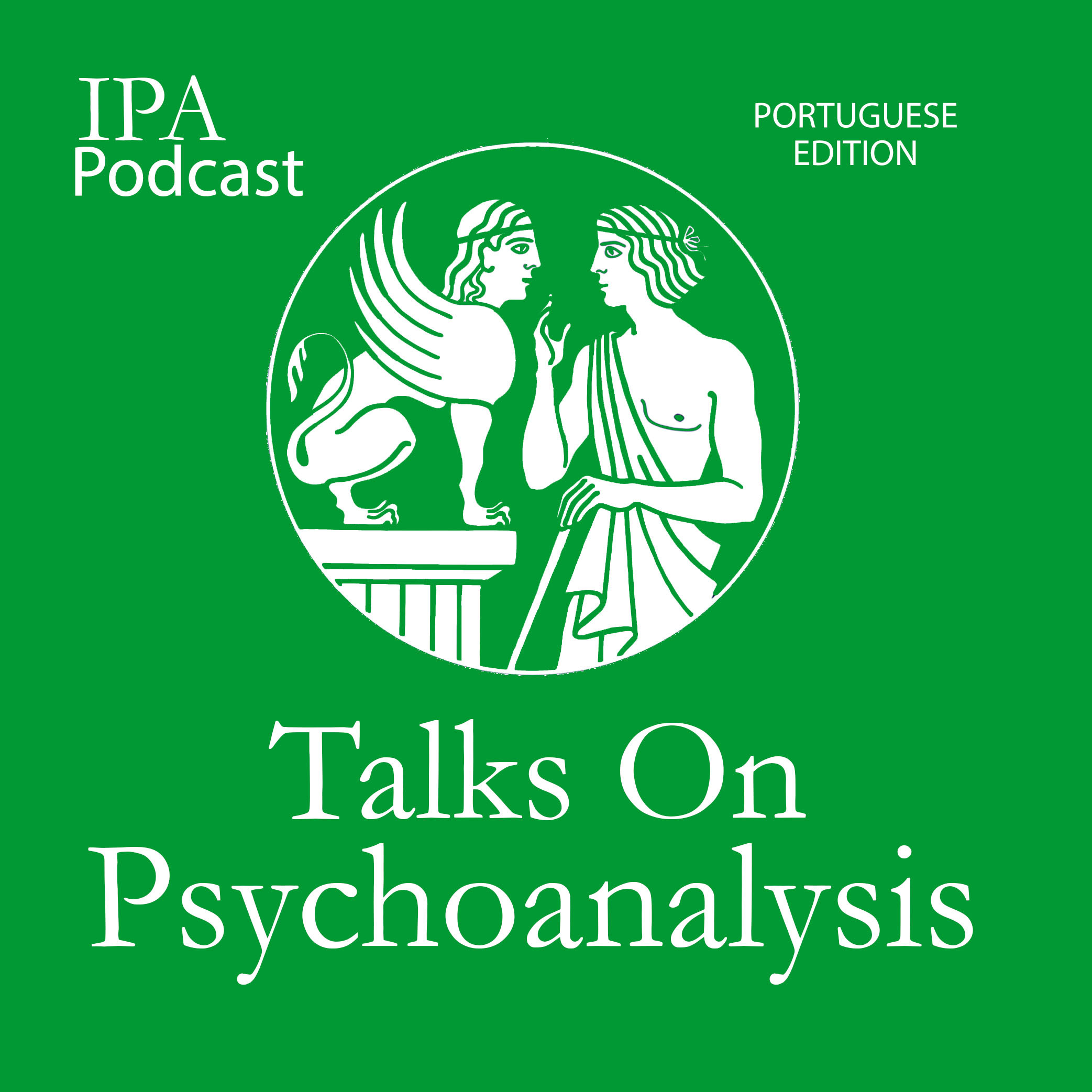 |
Episodes

Wednesday Jan 14, 2026
Wednesday Jan 14, 2026
In this article, Christine Anzieu-Premmereur explores the relationship between compulsion and the body in childhood and adolescence. Using psychoanalytic theory, she analyzes how the compulsive repetition of self-destructive behaviors can represent an attempt to process and make sense of early traumatic experiences. The article highlights the importance of early therapeutic intervention in childhood to prevent emotional and addictive problems later in life. In a world where addiction and emotional difficulties affect many people, understanding the roots of these behaviors is crucial. Through psychoanalytic theory, the author guides us in exploring the underlying mechanisms of compulsive repetition and its role in shaping subjectivity.Christine Anzieu-Premmereur proposes models of early psychic processes that influence repetition compulsion, distinguishing between two types: one that fosters creativity and openness, and another that leads to disorganization and destructiveness. She examines how early relationship disturbances can contribute to addiction and compulsive behaviors in adulthood. Early therapeutic intervention is therefore essential to foster creativity and free association in patients.Ultimately, the author argues that compulsive behaviors can reflect attempts to process and make sense of early experiences, even when this process is painful or difficult. She also highlights the importance of analytic space, transitional spaces, and creative activities as settings where emotions can be explored and understood.
Christine Anzieu-Premmereur is an adult and child psychiatrist and psychoanalyst, and a member of the Société Psychanalytique de Paris and the New York Psychoanalytic Institute. She directed the Parent-Infant Psychotherapy Training at Columbia University and served as chair of the IPA Committee for Child and Adolescent Psychoanalysis. She has published extensively on motherhood, child psychoanalysis, psychosomatics, addiction, and the intersection of the body and compulsion.
You can download a copy of the paper here.
This podcast series is produced by the International Psychoanalytical Association as part of the activities of the IPA Outreach Subcommittee.
Chair: Gaetano Pellegrini.
Podcast Coordinator: Florencia Biotti.
Editing and Post-Production: Massimiliano Guerrieri.
To stay informed about the latest podcast releases, please subscribe today.
Cover Image: Simon Vouet, Madonna and Child, 1633.Courtesy of National Gallery of Art, Washington, D.C.
https://www.nga.gov/artworks/206070-madonna-and-child

Tuesday Oct 14, 2025
Tuesday Oct 14, 2025
"X". Calle Alcalá, Madrid. Photograph by Ana M. Martín Solar.
With the evocative title “Once Again, the Mystery”, the Argentine psychoanalyst Mariano Horenstein poses the equally enigmatic question: How do we listen to the language of sexuality today?
Through an exploration of the relationship between language and psychoanalysis and the historical transformation of the clinical paradigms that have shaped psychoanalytic listening to date: hysteria, in its origins, with its enigmatic language surrounded by silences, which inaugurated the analytical device; psychosis, which after the Second World War led to the expansion of the field, forcing us to give voice and testimony where the absence of repression predominated; the author shows us the trans clinic as a new paradigm that is currently emerging, not only because it requires the analyst to be heard, but also because it bursts onto the scene with its own voice and avatars of inclusive language, directly challenging psychoanalytic theory and practice, and thus bringing sexuality back to the centre of the psychoanalytic stage and debate.
In 2022, “Once Again, the Mystery” won the biennial Carolina Zamora Prize awarded by the Asociación Psicoanalítica de Madrid, which recognised the author by inviting him to participate as one of the main speakers at the seventh Meeting of Spanish-speaking Psychoanalysts in 2024.
Mariano Horenstein is a psychoanalyst with a teaching role at the Córdoba Psychoanalytic Association and the International Psychoanalytic Association.
He is a former representative for Latin America on the IPA Board.
He is the former editor-in-chief of Calibán-Revista Latinoamericana de Psicoanálisis. He is also the author of the books:
‘Psicoanálisis en lengua menor’ (Psychoanalysis in a Minor Language); ‘Brújula y diván. El psicoanálisis y su necesaria extranjería’ (Compass and Couch: Psychoanalysis and its Necessary Foreignness); ‘Funambulistas. Travesía adolescente y riesgo’ (Tightrope Walkers: Adolescent Journey and Risk); and ‘Conversaciones de diván’ (Couch Conversations).
www.marianohorenstein.com
This episode is presented in English and Spanish.
Spanish
You can download a copy of the paper here.
This podcast series is produced by the International Psychoanalytical Association as part of the activities of the IPA Outreach Subcommittee.
Chair: Gaetano Pellegrini.
Podcast Coordinator: Florencia Biotti.
Editing and Post-Production: Massimiliano Guerrieri.
To stay informed about the latest podcast releases, please subscribe today.
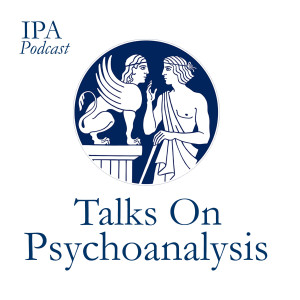
Tuesday Jul 22, 2025
Tuesday Jul 22, 2025
In the wake of profound cultural change, the traditional image of the father has been destabilized, prompting renewed psychoanalytic reflection. No longer confined to authority alone, the paternal figure is now expected to embody both care and limit. What psychic space does the father occupy in the life of the child? In this episode, Heribert Blass explores fatherhood through a contemporary psychoanalytic lens.
Drawing on clinical experience, interdisciplinary research, and cultural observation, he outlines a model of committed paternity that integrates emotional presence with symbolic function. From early play to Oedipal conflict, the father's task is to protect, to differentiate, and to support the child's path toward autonomy. Rather than fading, he emerges as a complex figure situated at the intersection of intimacy, separation, and symbolic function—and essential to the child's inner world.
Heribert Blass, medical doctor, is a psychoanalyst for adults, children, and adolescents; a training and supervising analyst of the German Psychoanalytic Association and the IPA; also a specialist in psychosomatic medicine and psychotherapy, and psychiatry, working in private practice in Düsseldorf, Germany. He is the president-elect of the IPA and served as president of the European Psychoanalytic Federation from 2020 to 2024. His publications cover a wide range of topics, including male identity and sexuality, the image of the father, supervision, generativity both in clinical work and within psychoanalytic institutions, boundary violations, the relationship between internal and external reality, psychoanalysis and society (especially during the COVID-19 pandemic), as well as time and the experience of time.
French
German
Italian
Portoguese
Spanish
You can download a copy of the paper here
This Podcast Series, published by the International Psychoanalytical Association, is part of the activities of the IPA Communication Committee and is produced by the IPA Podcast Editorial Team.
Co-Editors: Gaetano Pellegrini and Nicolle Zapien.
Editing and Post-Production: Massimiliano Guerrieri.
To stay informed about the latest podcast releases, please sign up today.

Thursday Jun 26, 2025
Thursday Jun 26, 2025
The current social, political and historical context offers many difficult challenges. We have experienced up close and from a distance awareness of a remarkable number of challenges including the wars, political unrest, growing socioeconomic inequities, climate catastrophe, and human and animal suffering. These times are also marked by polarized thinking, including among analysts, candidates and in our communities. An application of a psychoanalytically-informed method that rests on psychoanalytic clinical theory but focuses on group experiences of psycho-historical conflict as it continues in the present is offered as a means to facilitate deep and moving change when there is toxic polarization.
In this episode, Dr. Harriet Wolfe presents a unique application of psychoanalytic thinking. She describes an interdisciplinary group that is international, intergenerational and diverse that meets periodically to apply analytic thinking to intractable large scale historical group traumas. This method, called the International Dialogue Initiative includes psychoanalysts but also others (e.g. economists, lawyers, diplomats, historians) who share stories and deeply listen with the purpose of gaining perspective on unmanageable feelings through exploring cases of traumatic residues. While others, including Freud have theorized application of psychoanalysis to groups, this particular use is novel and important in today’s times and speaks to how psychoanalysis can be truly psychoanalytic and at the same time be applied to political and social issues.
Harriet Wolfe, M.D., is President of the International Psychoanalytical Association, Past President of the American Psychoanalytic Association, Clinical Professor of Psychiatry and Behavioral Sciences at the University of California San Francisco, and Training and Supervising Analyst at the San Francisco Center for Psychoanalysis. Her scholarly interests include clinical applications of psychoanalytic research, organizational processes, female development, and therapeutic action. She has co-authored a number of psychoanalytically informed guided activity workbooks for children, parents and teachers to help children cope with natural and manmade disasters. She has a private practice of psychoanalysis, and individual and couple’s psychoanalytic psychotherapy in San Francisco.This Podcast Series, published by the International Psychoanalytical Association, is part of the activities of the IPA Communication Committee and is produced by the IPA Podcast Editorial Team.
Co-Editors: Gaetano Pellegrini and Nicolle Zapien.
Editing and Post-Production: Massimiliano Guerrieri.
To stay informed about the latest podcast releases, please sign up today.
A subtitled version of this podcast is available on our YouTube channel:
You can download a copy of the paper here.

Thursday Jun 05, 2025
Thursday Jun 05, 2025
What happens when the analytic setting—built on confidentiality and silence—meets the institutional demands of psychoanalytic training? Can the frame of supervision truly preserve the integrity of the analytic pact, or does it inevitably put it at risk?
In this episode, Ellen Sparer explores a central paradox in psychoanalytic formation: the tension between the confidentiality of analytic work and the structural requirements of supervision. Drawing from her experience at the Paris Psychoanalytic Institute, she asks whether supervision risks undermining the very foundation of the analytic situation—what Freud, in An Outline of Psychoanalysis, described as a pact in which “the patient’s sick ego promises us the most complete candour…” while “we, on the other hand, assure him of the strictest discretion.”
Through reflections on André Green, José Bleger, and Freud’s concept of disavowal, Sparer examines what she calls a “noisy contradiction”—a situation in which the analyst-in-formation becomes both observer and observed, and where the silence essential to the analytic space is disturbed by institutional structure. She invites us to consider the Institute’s role as a symbolic third—present, structuring, yet potentially unsettling—and to ask whether we can live with this paradox without disavowing its presence.
Rather than resolving the contradiction, this episode engages with it directly, as Ellen Sparer offers a nuanced and courageous inquiry into a space of ethical tension, institutional inheritance, and potential transformation at the core of analytic formation.
Ellen Sparer is a training analyst at the Paris Psychoanalytic Society and former Director of the Paris Institute of Psychoanalysis, a role she held until March 2025. She has served as co-chair of the Applicant Societies Committee of the IPA, where she contributed to the evaluation of emerging psychoanalytic groups seeking IPA recognition. She is also an Associate Editor of the International Journal of Psychoanalysis, where she’s part of the Education Section, and a scientific advisor for the Jahrbuch of Psychoanalysis. From 2009 to 2019, she was on the editorial board of the Revue Française de Psychanalyse. Most recently, she was elected to the IPA Board as a European representative.
Her scientific work and publications focus on the unconscious ego, supervision, training, the frame, and ethics. She has also written on countertransference phenomena, including the function of the analyst’s dream in the treatment process.
This Podcast Series, published by the International Psychoanalytical Association, is part of the activities of the IPA Communication Committee and is produced by the IPA Podcast Editorial Team.
Co-Editors: Gaetano Pellegrini and Nicolle Zapien.
Editing and Post-Production: Massimiliano Guerrieri.

Wednesday Mar 19, 2025
Wednesday Mar 19, 2025
Medical interventions in fertility have transformed how people experience parenthood. How can clinicians navigate the intricate emotional landscape created by assisted reproduction?
In this episode, Renata Viola Vives and Ana Teresa Vale explore the complex relationship between assisted reproduction and psychoanalysis, drawing from their edited book, "Pregnancy, Assisted Reproduction and Psychoanalysis," published by Routledge. Conceived through years of clinical work and shaped by the collaborative encounters fostered by COWAP, the IPA Women and Psychoanalysis Committee, they explore how contemporary practices redefine our understanding of parenthood, identity, and desire.
Drawing on their extensive experience, the authors address the historical tensions between psychoanalysis and reproductive technologies, and highlight the need for a nuanced approach. By examining the emotional impact of procedures like gàmete donation and sùrrogacy, they emphasize the importance of understanding the anxieties and fantasies that accòmpany these kinds of journeys to parenthood.
Renata Viola Vives is a Clinical Psychologist and Psychoanalyst, a member of the Brazilian Society of Psychoanalysis in Porto Alegre, and currently COWAP's Latin-American representative. She is an editor and organizer of books on parenting, assisted reproduction, and adoption.
Ana Teresa Vale is a Clinical Psychologist and a Psychoanalyst, member of the Portuguese Psychoanalytic Society, teaching in her Society’s training program. She is Assistant Director of the Portuguese Psychoanalytic Journal, and currently COWAP's European representative.
This episode is presented in English, Portuguese, Spanish, and French. The English version is read by Ana Teresa Vale.
french
portuguese
spanish
This Podcast Series, published by the International Psychoanalytical Association, is part of the activities of the IPA Communication Committee and is produced by the IPA Podcast Editorial Team.
Co-Editors: Gaetano Pellegrini and Nicolle Zapien.
Editing and Post-Production: Massimiliano Guerrieri.
To stay informed about the latest podcast releases, please sign up today.

Thursday Jan 16, 2025
Thursday Jan 16, 2025
What challenges face the patient and analyst in constructing the analytic space? How can the analyst navigate the interplay of intense emotional dynamics to enable meaningful transformation?
In this article, titled "The Analyst and the Patient: Building a Space for Thinking", Alberto Carrión García de Parada, delves into the intricate process of building a shared analytic space. Drawing on his extensive experience in child and adolescent psychoanalysis and parent-infant psychotherapy, he examines the dynamic interplay of transference and countertransference, highlighting the analyst's active role in containing disturbing emotional and mental content.
Integrating classical theories with contemporary developments, the article references key figures such as Wilfred Bion and León Grinberg to explore the evolution of the analytic process through shared emotional "storms" and the gradual dismantling of initial patient resistances. By emphasizing the importance of the analyst's reverie and countertransference awareness, the article underscores how the analytic setting can serve as a transformative framework for emotional containment and psychic development.
Alberto Carrión García de Parada is a Clinical Psychologist and Training Psychoanalyst of the Madrid Psychoanalytical Association (APM). He is also a child and adolescent psychoanalyst, and has a special interest in parent-infant psychotherapy. He has directed the children and adolescents Department and is currently president of the APM.
He participates as a lecturer in an annual cycle on cinema and psychoanalysis organised by the Colegio Mayor Isabel de España. He has given many lectures in psychoanalytic forums and is the author of several articles in the journal of psychoanalysis of the APM as well as in other psychoanalytic psychotherapy journals. Some of these articles are:
The role of the psychotherapist in psychoanalytic psychotherapy with children and adolescents (2008). From play to sport (2012). The child psychoanalyst. Transformations in the mother-baby bond (2018). Frame and reverie (2020).
Other articles written in collaboration with several authors:
Adolescence and melancholic functioning (2010). Enuresis: a manifestation of childhood regression (2011).
He has participated in the book Interrogated Parentality, edited by the APM (2020).
A subtitled version of this podcast is available on our YouTube channel:
https://youtube.com/playlist?list=PLhxiwE76e0QaOquX3GujdwNLFsgxUQNXz&si=yf381EDu3pess6Yz
This episode has also been published in Spanish.
This Podcast Series, published by the International Psychoanalytical Association, is part of the activities of the IPA Communication Committee and is produced by the IPA Podcast Editorial Team.
Co-Editors: Gaetano Pellegrini and Nicolle Zapien. This episode has been produced in collaboration with Ana Maria Martin Solar.
Editing and Post-Production: Massimiliano Guerrieri.
To stay informed about the latest podcast releases, please sign up today.

Wednesday Aug 21, 2024
Wednesday Aug 21, 2024
In today’s context of reproductive technologies, one has the idea that we might have more control over the process of reproduction. No longer necessarily linked to sexuality, reproduction and parenthood can occur in a multitude of ways, pushing the boundaries of what was not thought to be possible or acceptable. These biotechnical innovations have not only changed the ways that one can become a parent but also necessarily suggest new areas for psychoanalytic theorizing.
In this podcast episode, Dr. Patricia Alkolombre discusses how the desire for a child has become in some cases, the passion for a child “at any price”, made more urgent and concentrated as the biotechnical innovations offer us the sense that we have control over our bodies and their reproductive and gestational functions in new ways. She discusses what this means for psychoanalytic understandings of gender, parenthood, femininity, loss, disappointment, narcissism and our understandings of ourselves and how this new era of reproduction ushers in a new set of clinical issues.
Dr. Patricia Alkolombre holds a PhD in Psychology from the University of Salvador. She is a Training and supervising analyst of the Argentine Psychoanalytic Association and is the current Overall Chair of the IPA Committee on Women and Psychoanalysis. She gives seminars in many post-graduate institutions and mental health centers in Buenos Aires and in psychoanalytic institutions abroad, among them are the Psychoanalytic Association of Guadalajara, the Brazilian Society of Porto Alegre, Brazil.
She is the author and editor of several books. Among them are: The Desire and Passion for a Child: Psychoanalysis and Contemporary Reproductive Techniques (Routledge, 2023) in Spanish and english. She is also the author and the editor of the book Travesías del cuerpo femenino (2012) (Declared of Interest in Culture and Health by the Legislature of the City of Buenos Aires).
She is co-author of Changing sexualities and parental function in the twenty first century (Routledge 2017) and of Psychoanalytic Explorations of what women want today: femininity, desire, and agency (Routledge 2022).
A subtitled version of this podcast is available on our YouTube channel:
https://youtube.com/playlist?list=PLhxiwE76e0QaOquX3GujdwNLFsgxUQNXz&si=yf381EDu3pess6Yz
You can download a copy of the paper here:
https://docs.google.com/document/d/1j-ANLupJF6b44NVmlC0XSfMMml7-sprb/edit?usp=sharing&ouid=100400904585889441765&rtpof=true&sd=true
This Podcast Series, published by the International Psychoanalytical Association, is part of the activities of the IPA Communication Committee and is produced by the IPA Podcast Editorial Team. Co-Editors: Gaetano Pellegrini and Nicolle Zapien. Editing and Post-Production: Massimiliano Guerrieri.
To stay informed about the latest podcast releases, please sign up today.
This episode has also been published in Spanish.
This episode has also been published in Portuguese.
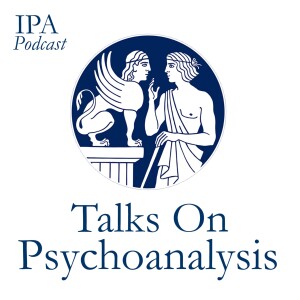
Tuesday Jun 25, 2024
Tuesday Jun 25, 2024
What is it that is so captivating about travel? In Freud’s travel letters chronicling his experiences over many decades in different countries, there are the seeds of the advance of non-clinical experiences of psychoanalysis. Travel takes us to another place with unfamiliar surroundings so that we might see anew that which we may otherwise take for granted. Awe and beauty are often experiences we have while abroad. And these are described by Freud over and over again in these captivating letters.
In this podcast episode, Dr. Patricia O’Donnell discusses Freud’s travel letters and his musings on the pleasures of travel, art, and architecture, as experiences that inspire awe and transcendence. She links these experiences to the unconscious fantasizing that stems from curiosity, rooted in infantile sexuality and that gives rise to the desire to know and triggers of experiences of passion.
Dr. Patricia O’Donnell is a psychiatrist, a full member and training analyst of the Argentine Psychoanalytic Association and a member of the International Psychoanalytic Association. She is also an Associate Professor at the Department of Mental Health at the Hospital de Clinicas Jose de San Martin. She has presented papers at national and international conferences and delivered workshops and lectures on psychoanalytic art research. She has written numerous articles and co-authored books on topics ranging from psychoanalysis and creativity, art and literature.
A subtitled version of this podcast is available on our YouTube channel:https://youtube.com/playlist?list=PLhxiwE76e0QaOquX3GujdwNLFsgxUQNXz&si=yf381EDu3pess6Yz
You can download a copy of the paper here: https://docs.google.com/document/d/1-dthE_sMLxYjtDl4uWWTuEdYD4THtjSN/edit?usp=share_link&ouid=100400904585889441765&rtpof=true&sd=true
This Podcast Series, published by the International Psychoanalytical Association, is part of the activities of the IPA Communication Committee and is produced by the IPA Podcast Editorial Team. Co-Editors: Gaetano Pellegrini and Nicolle Zapien. Editing and Post-Production: Massimiliano Guerrieri.
To stay informed about the latest podcast releases, please sign up today.
This episode has also been published in Spanish.

Wednesday May 22, 2024
Wednesday May 22, 2024
What roles do the inanimate objects in the psychoanalyst’s office play in the treatment? Paintings on the walls, bookcases, armchairs, carpets, sculptures, and of course, the couch are simultaneously objects of external reality which are part of the frame, and they may also become part of the internal reality of the patient. Can these objects have an important effect on the progress and process of analytic treatment? It is these questions that Jacqueline Godfrind will address in this podcast episode.
Starting from theories of objects as autistic, transitional, resemblances and fetishized, put forth by Tustin, Winnicott, Searles and Kestemberg, she will broaden the reflection based on her own clinical observations of her analysands during a period when she redecorated her office. These objects, she illustrates, can become transferential objects, rich with important meanings and may support sensory or archaic investments, and this is even more the case in certain patients with fragile structures.
Jacqueline Godfrind is a full member and training analyst of the Belgian Society of Psychoanalysis of which she was scientific secretary, president and president of the teaching commission. She has long participated in training in child psychotherapy where she was a lecturer at the Free University of Brussels. She has further led multiple supervisions in various fields. In addition, she has a background as a child analyst and a long practice as an adult psychoanalyst. Her writings and publications are many including: The two currents of transference and Psychoanalysis beyond speech - the body which contain her reflections on the treatment clinic, and How femininity comes to women which addresses her interest in the feminine. She has participated in the production of several collective works, notably on topics as wide ranging as acting out in the treatment, and also in the work titled What is operative in the treatment, which won the Oedipus prize.
A subtitled version of this podcast is available on our YouTube channel: https://youtube.com/playlist?list=PLhxiwE76e0QaOquX3GujdwNLFsgxUQNXz&si=yf381EDu3pess6Yz
You can download a copy of the paper here: https://docs.google.com/document/d/1zzvBBjMdz5zs5RuFg3MswZfvuINkmNSp/edit?usp=share_link&ouid=100400904585889441765&rtpof=true&sd=true
This Podcast Series, published by the International Psychoanalytical Association, is part of the activities of the IPA Communication Committee and is produced by the IPA Podcast Editorial Team. Co-Editors: Gaetano Pellegrini and Nicolle Zapien. Editing and Post-Production: Massimiliano Guerrieri.
This episode has been produced in collaboration with Julia-Flore Alibert.
To stay informed about the latest podcast releases, please sign up today.
This episode has also been published in French.
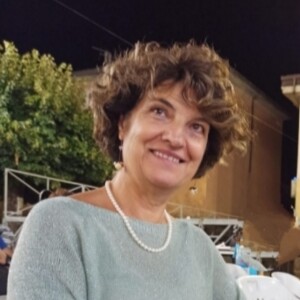
Tuesday Apr 16, 2024
Tuesday Apr 16, 2024
How can neuropsychoanalysis help us to understand Artifical Intelligence? We encounter Artificial Intelligence everyday, which is modeled to a certain extent on human consciousness, and so AI gives us a view into what we know and what we may not know about ourselves. In addition, we now develop our sense of self and others both within the virtual and material worlds – AI could be said therefore to not only be modeled on human consciousness, but it is also impacting our development.
In this podcast episode, Dr. Rosa Spagnolo discusses consciousness, artificial intelligence and the development of superintelligent AI. She considers what this implies for human and AI development, identifications, subjectivity, and suffering, leveraging neuropsychoanalytic understandings of the mind.
Dr. Rosa Spagnolo is a child neuropsychiatrist, developmental psychotherapist and psychoanalyst member of the Italian Psychoanalytic Society and the IPA. She is co-chair and co-founder of the Italian Psychoanalytic Dialogues Association. Dr. Spagnolo is a member, regional coordinator and chair of the Italian group of the International Neuropsychoanalysis Society. She teaches at several institutions and is a sought-after speaker at national and international conferences. She has written several books and articles on a variety of topics including: Eating disorders, group analytic psychotherapy, neuropsychoanalysis, and neuropsychiatric developmental disorders. She was nominated for the Gradiva award in 2019.
A subtitled version of this podcast is available on our YouTube channel:https://youtube.com/playlist?list=PLhxiwE76e0QaOquX3GujdwNLFsgxUQNXz&si=yf381EDu3pess6Yz
You can download a copy of the paper here: https://docs.google.com/document/d/1DYtz3e3Dq9WC8qGhH3KqkCrM4ejPAINj/edit?usp=sharing&ouid=100400904585889441765&rtpof=true&sd=true
This Podcast Series, published by the International Psychoanalytical Association, is part of the activities of the IPA Communication Committee and is produced by the IPA Podcast Editorial Team.
Head of the Podcast Editorial Team: Gaetano Pellegrini.Editing and Post-Production: Massimiliano Guerrieri.
This episode has been published also in French
This episode has been published also in Italian

Thursday Feb 01, 2024
Thursday Feb 01, 2024
How does a psychoanalyst grapple with the sudden impact of a traumatic loss in their personal life, and how does it reverberate in their professional capacities? How do analysts navigate the challenges associated with illness or the inevitable effects of aging?Moving beyond the various losses in real life, analysts face the challenge of dealing with the loss and mourning of their illusions—illusions of immortality and invulnerability. Analysts are tasked with confronting their own finitude and limits, contemplating how to approach and address them.
In this podcast episode, Marc Hebbrecht delves into the nuanced scenarios of loss and disillusionment that psychoanalysts encounter throughout their careers, drawing insights from Nanni Moretti's film “La Camera del Figlio”, as an illustrative example.
Marc Hebbrecht is a psychiatrist and psychoanalyst. He is a full member, training analyst and current president of the Belgian Psychoanalytical Society (SBP). He lives in Tongeren, Belgium, and works in private practice and at the Leuven University Hospital for Psychiatry in Kortenberg, near Brussels. He was editor-in-chief of the Dutch Journal of Psychoanalysis. He teaches psychoanalytic psychotherapy at the University of Leuven and integrative psychotherapy at the University of Antwerp. He has written several books and published in major international psychoanalytical journals. His areas of interest are dreams, narcissism, erotic transference and psychoanalytic nosography.
Link to download the paper https://docs.google.com/document/d/1-Nyy_48pCt2QFuxA14lu3PbToGT6g9k-/edit?usp=share_link&ouid=112457875385152358388&rtpof=true&sd=true
A subtitled version of this podcast is available on our YouTube channel:https://youtube.com/playlist?list=PLhxiwE76e0QaOquX3GujdwNLFsgxUQNXz&si=yf381EDu3pess6Yz
This episode has been produced in collaboration with Julia-Flore Alibert.
This Podcast Series, published by the International Psychoanalytical Association, is part of the activities of the IPA Communication Committee and is produced by the IPA Podcast Editorial Team.
Head of the Podcast Editorial Team: Gaetano Pellegrini.Editing and Post-Production: Massimiliano Guerrieri.
This episode is available also in French
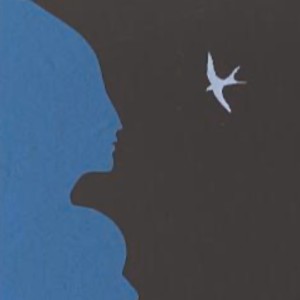
Monday Jan 22, 2024
Monday Jan 22, 2024
What does a psychoanalyst do in his practice with his patients? How can we define the act of the psychoanalyst at work? It is this vast question that Bernard Penot addresses in this podcast, talking about the act of the psychoanalyst in the service of subjectivation. Referring to Freud's work on transference and then to Lacan's work on the psychoanalytical act during the years of student revolts in France in may 1968, he manages to show us the active involvement of the psychoanalyst in the practice of the cures he provides.
Bernard Penot is a french psychoanalyst. He lives and works in Paris. He has been a full member and training analyst of the Paris Psychoanalytical Society since 1990. As neuropsychiatrist, he was the director of a day hospital for adolescents in Paris for many years. He is the author of several books published in french, and of numerous articles published in the French journal of psychoanalysis and the International journal of psychoanalysis.
Link to the paper https://docs.google.com/document/d/1YtXzBF8rEX4-Gpf6tGsajv6-tShQxbwT/edit?usp=sharing&ouid=112457875385152358388&rtpof=true&sd=true
This episode is available also in French
A subtitled version of this podcast is available on our YouTube channel:https://youtube.com/playlist?list=PLhxiwE76e0QaOquX3GujdwNLFsgxUQNXz&si=yf381EDu3pess6Yz
This episode has been produced in collaboration with Julia-Flore Alibert.
This Podcast Series, published by the International Psychoanalytical Association, is part of the activities of the IPA Communication Committee and is produced by the IPA Podcast Editorial Team.
Head of the Podcast Editorial Team: Gaetano Pellegrini.Editing and Post-Production: Massimiliano Guerrieri.
Music: Chopin_Waltzes_Op.69. Performer Olga Gurevich. https://musopen.org/music/4415-waltzes-op-69/
Cover Image: Blue human figure and fox in cage on black paper. Blum, Alexandra, artist - Courtesy Library of Congress. https://hdl.loc.gov/loc.pnp/pp.print

Thursday Dec 14, 2023
Thursday Dec 14, 2023
The place of sexuality in psychoanalytic treatment and training today: Can we observe a disappearance of sexuality in case reports and supervisions?
How does the evolving discourse on sexuality influence psychoanalytic practice and training? In an era where sexual dysphoria is seemingly on the rise, particularly among younger generations, questions arise about the current positioning of Freud's drive theory and the status of sexual issues in psychoanalytic education. Are we witnessing a shift where sexuality loses its central place within psychoanalytic thought?
In this episode of the IPA Talks On Psychoanalysis podcast series, we explore these questions through a comprehensive discussion. The focus is on the potential diminution of sexual themes in psychoanalytic case reports, as observed in recent years, and its implications for psychoanalytic methodology. The discourse originated in the 2021 supervisors' and training analysts' conference of the German Psychoanalytical Association (DPV) in Cologne, Germany and quickly spread to other places, reflecting global concerns about the reduced emphasis on sexuality in candidates' reports for qualification.
This exploration revisits some cornerstones of Freud's seminal theories but also examines the more modern theories and psychoanalytic techniques that emphasize transference-countertransference dynamics for the understanding of sexual fantasies and identities. The role of societal changes, shifts in sexual identity, and the impact of media on sexual behaviour and expression are critically analyzed.
The paper featured in this episode has been previously presented at various events, including a SPP Webinar and the 53rd IPA Congress in Cartagena. It has been translated and published in several psychoanalytic Journals. The IPA Talks On Psychoanalysis podcast series now offers it to its listeners in German, English, Spanish and Italian.
You can access the recent edition of the APA's Journal of Psychoanalysis, featuring a publication with two accompanying commentaries by Alicia Killner and Beatriz Zelcer, at this link: https://revista-de-psicoanalisis.apa.org.ar
Rotraut De Clerck is a renowned psychoanalyst of the German Psychoanalytical Association (DPV) and has been a long-term guest to the British Psychoanalytic Society (BPS). Her work notably intersects psychoanalysis with culture and public discourse. She has carried out the “Psychoanalysis in Literature – Literature in Psychoanalysis” series at the Literaturhaus Frankfurt, fostering dialogue between contemporary writers and Freud's texts. De Clerck's clinical interests include theories on the dynamic interplay of narcissism and object love, of the unconscious and changes in sexuality, including homosexuality “neo-sexualities” and the concepts of masochism. De Clerck's contributions extend to psychoanalytic portraits of literary figures like Albert Camus, Virginia Woolf, painters like Maria Lassnig and notably Lucian Freud. She chairs the EPF's “Psychoanalysis and Literature group and serves as a Consultant on the IPA Culture Committee. Her recent projects focus on the place of sexuality in psychoanalytic theory and practice today.
Link to the paper https://docs.google.com/document/d/1jwtEt3rBf0BSGsl_uFxv6xwVrPPr_dvR/edit?usp=drive_link&ouid=112457875385152358388&rtpof=true&sd=true
This episode is available also in:
German
Spanish
Italian
A subtitled version of this podcast is available on our YouTube channel:https://youtube.com/playlist?list=PLhxiwE76e0QaOquX3GujdwNLFsgxUQNXz&si=yf381EDu3pess6Yz
This Podcast Series, published by the International Psychoanalytical Association, is part of the activities of the IPA Communication Committee and is produced by the IPA Podcast Editorial Team.
Head of the Podcast Editorial Team: Gaetano Pellegrini.Editing and Post-Production: Massimiliano Guerrieri.
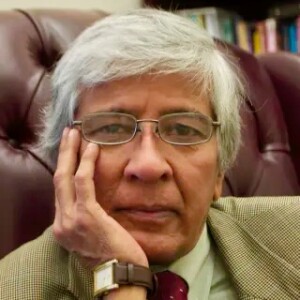
Friday Nov 03, 2023
Friday Nov 03, 2023
Still Life with Fruit and Wineglasses on a Silver Plate, c. 1659-1660, Willem Kalf. Courtesy Mauritshuis, The Hague.
Why do some people seem unable to achieve full satisfaction in things? What keeps them dissatisfied even after achieving their goals? And why does the Ego persist in avoiding mourning and sticking to the same solutions?
In this episode of the IPA Talks On Psychoanalysis podcast series, Salman Akhtar presents his theory that redefines the classical Kleinian conception of the rupture between Gratification and Satisfaction as a consequence of the death instinct derived attack upon the provider of gratification. This should indeed lead us to the search for a state of tranquility rather than an increase in tension. What role does the Life Instinct, instead, play in this restless search, in this excessive intense refusal to believe that further gratification shall not result in satisfaction?
This exploration not only offers a theoretical perspective but also has profound implications for clinical practice and our understanding of psychoanalytic technique.
The episode we share with you today is sourced from the wealth of content presented at the 53rd IPA Congress in Cartagena. It was a part of the "Fanning the Flames" Panel, featuring Salman Akhtar, alongside Cordelia Schmidt-Hellerau, Claudia Antonelli, and moderated by Fred Busch. We are delighted to announce the opportunity to watch the complete panel, along with many other outstanding presentations from the Cartagena Congress, on the www.ipa.world website.
Salman Akhtar, MD is an internationally known psychiatrist, psychoanalyst, writer, and poet based in the United States. He has published 108 authored or edited books and given lectures and workshops in over 40 countries. Dr.Akhtar has served on the editorial boards of the three most important journals of our field, namely Journal of the American Psychoanalytic Association (JAPA), IJP, and The Psychoanalytic Quarterly PQ. His books have been translated in many languages and he has received numerous professional honors, including the highly prestigious Sigourney Award for Distinguished Contributions to Psychoanalysis. Recently a 10-volume set of his Selected Papers was released at a festive ceremony at the Freud House& Museum in London. Dr. Akhtar has published 18 collections of poetry and serves as a Scholar-in-Residence at the Inter-Act Thater Company in Philadelphia.
A subtitled version of this podcast is available on our YouTube channel:
https://youtube.com/playlist?list=PLhxiwE76e0QaOquX3GujdwNLFsgxUQNXz&si=yf381EDu3pess6Yz
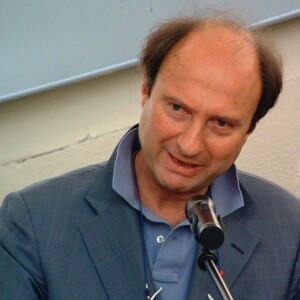
Thursday Oct 12, 2023
Thursday Oct 12, 2023
A plea for a third topicality.An intrapsychic representation of the intersubjective bond,even before the discovery of the object.
Can psychoanalysis be useful with infants? How can we think through concepts of metapsychology with infants? The two Freudian topics are in reference to the instances which are fruit of the completed intrapsychic differentiation process. How can they be useful with infants, who by nature are still undifferentiated and unfinished? In this episode Bernard Golse presents us with his arguments for a third topical approach. Drawing on his extensive experience of parent-infant therapy, he proposes a metapsychology of the primitive pre-object bond, a perinatal topic of mental representation of the intersubjective bond prior to differentiation of instances and object discovery.
Bernard Golse is a child psychiatrist and psychoanalyst (member of the Association Psychanalytiquede France) and Professor Emeritus of Child and Adolescent Psychiatry at the Université Paris Cité. For many years he was head of the Child Psychiatry Department at the Necker-Enfants MaladesHospital in Paris. Among other associative activities, he is presently chair of the European Association of Child and Adolescent Psychopathology and he recently founded the Institut Contemporain de l'Enfance to promote psychological care and support for infants, children, and adolescents, with reference to psychoanalysis, psychopathology and pedagogy with links to the world of arts and culture because of the dialectic that exists between therapeutic creativity and artistic creativity. The three areas in which he has been most involved are early infant development, autism spectrum disorders and adoption issues. He is therefore particularly focused on the question of links.
A subtitled version of this podcast is available on our YouTube channel:https://youtube.com/playlist?list=PLhxiwE76e0QaOquX3GujdwNLFsgxUQNXz&si=yf381EDu3pess6Yz
This episode has been produced in collaboration with Julia-Flore Alibert.
This Podcast Series, published by the International Psychoanalytical Association, is part of the activities of the IPA Communication Committee and is produced by the IPA Podcast Editorial Team.
Head of the Podcast Editorial Team: Gaetano Pellegrini.Editing and Post-Production: Massimiliano Guerrieri.
You can download the written text of this paper from this link:https://docs.google.com/document/d/12dvhD8riz2DSwqYN7a8qOmbIQYndYUyF/edit?usp=drive_link&ouid=112457875385152358388&rtpof=true&sd=true
This episode is available also in French
Recommended Links and Readings:
S. Missonnier and B. Golse, The third topography: a topography of the bond, 89-114. In : Autistic phenomena and unrepresented states – Explorations in the emergence of Self (edited by H.B. LEVINE and J.SANTAMARIA).
Phenix Publishing House Ltd, “Firing the mind”, A.Santamaria Picoanálisis México, Oxfordshire, 2023
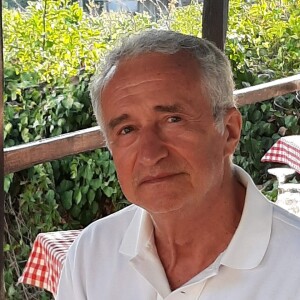
Monday Jun 12, 2023
Monday Jun 12, 2023
How can we think about the Oedipus complex today in a contemporary society beset by a crisis of ideals and the emergence of new forms of sexuality? Neurosis has not disappeared, but borderline states have become a prevalent adaptive mode in a world lacking solid authority figures and sinking into symbolic misery.
In this episode, François Richard is proposing his concept of the distorted Oedipus complex. Beginning with theoretical conceptions of Freud and then of his successors, he is suggesting that a specific form of the infantile oedipus complex persisting in adolescents and adults, give us a better understanding of borderline patients.
François Richard is a psychoanalyst and a member of the Paris Psychoanalytical Society. He is a psychoanalyst in private practice in Paris and has worked for many years in various medical and psychological institutions. As a clinical psychologist, he has also studied social sciences, which broadens his reflection on the impact of social factors on individual psychology. Professor of psychopathology at the Université Paris Cité, he has directed numerous theses and colloquiums, and at one time edited the journal Adolescence. He is the author of several books that have been subject of debates, including Le Processus de subjectivation à l'adolescence (2001), L'actuel malaise dans la culture (2011) and Le Surmoi perverti. His current research focuses on the current crisis of civilisation, the processes of sublimation (particularly in literature), sexual polymorphism, borderline states, and the relationship between frame and countertransference in the face of what he proposes to think of as a structurally deformed Oedipus complex.
Link to the paper https://docs.google.com/document/d/1ju6QxykJe0UK0JBu3QcLdzHZQOveq3HF/edit?usp=share_link&ouid=112457875385152358388&rtpof=true&sd=true
This episode is available also in French
This Podcast Series, published by the International Psychoanalytical Association, is part of the activities of the IPA Communication Committee and is produced by the IPA Podcast Editorial Team. Editor Gaetano Pellegrini.This episode was curated by Julia-Flore Alibert. Introduction written and read by Julia-Flore Alibert.Sound Engineer: Massimiliano Guerrieri.

Thursday Apr 20, 2023
Thursday Apr 20, 2023
Our self is always there and present throughout our whole life. Despite the many social, environmental and ecological changes as well as the major bodily changes, our self remains one and the same throughout the changes of our life. Where and how is the temporal continuity of our self coming from?
Georg Northoff is a philosopher, neuroscientist and psychiatrist, holding degrees in all three disciplines. He works in Ottawa/Canada holding a Canada Research Chair for Mind, Brain Imaging, and Neuroethics. His research focuses on the relationship between brain and mind. The question driving him is: “why and how can our brain construct mental features like self, consciousness, etc.” His approach to this complex answer is as unique as it is simple: he proposes that the brain’s constitutes its own inner time and space which, if properly aligned to and synchronized with the world’s outer time and space, will yield mental features like self and consciousness. This led him to develop a spatiotemporal theory of brain-mind relationship in all three fields, neuroscience, psychiatry and philosophy.
He is one of the leading figures in linking philosophy, psychiatry, and neuroscience having developed non-reductive neurophilosophy. He authored over 300 journal articles and 18 books in neuroscience, psychiatry and philosophy which are translated into several languages including “Neuro-philosophy and the Healthy Mind” (2016) Norton Publisher, and “Neurowaves" (McGill University Press 2023) and "Neuropsychoanalysis, an introduction" (Routledge 2023).
This episode is available also in German
All papers etc, can be found on the website: www.georgnorthoff.com
See recent Podcast for broader audience: www.youtube.com/watch?v=lDX3xOVHB18&t=237s
References:
Spagnolo R, Northoff G (2022) The dynamic self in psychoanalysis. Routledge
Northoff G (2023) Neuropsychoanalysis. An introduction. Routledge publisher
Northoff G (2023) Neurowaves. Brain, time and consciousness. McGill University Press
Northoff G, Scalabrini A. (2021) "Project for a Spatiotemporal Neuroscience" - Brain and Psyche Share Their Topography and Dynamic.
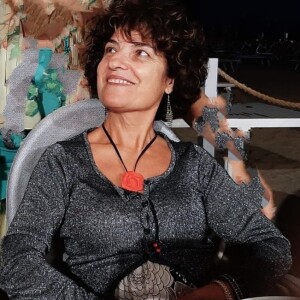
Tuesday Mar 21, 2023
Tuesday Mar 21, 2023
What is the relationship between the mind and the body, and how does it shape our understanding of the self? In this episode, Rosa Spagnolo presents her reflections on the topic, published in her recent book, written with Georg Northoff. In the book, she delves into how out-of-body experiences can shed light on the complex dynamics between the self and the world. She examines the relationship between the body and the brain, the role of time and space in shaping our experience of the self, and the intersection between psychoanalysis and neuroscience. Along the way, she touches on the potential implications of virtual reality on our sense of self.
Rosa Spagnolo, MD, Child Neuropsychiatrist; Developmental Psychotherapist; Psychoanalyst, Full Member of the Italian Psychoanalytic Society (SPI), IPA Member. She is Co-Chair and co-founder of the Italian Psychoanalytic Dialogues (IPD) association, which organizes annual Rome Conferences, on psychoanalytic and neuroscientific issues. She is a member of NPSA and chair of the "Italian Group of NPSA". She is chair of the IPAWEB page: the Psychoanalysis in the Age of Neuroscience and chair of the SPIWEB page of Neuroscience.
Teaches "Psychology of Nutrition" and "Treatment of Eating Disorders" at the University - Tor Vergata -, Rome, Master II level in "Diagnosis and Treatment of Eating and Weight Disorders". Teaches "Psychoanalysis and Culture" at the Graduate School of Psychoanalytic and Group Analytic Psychotherapy. Works in Rome at the Filippo Smaldone Institute for the rehabilitation of deafness, learning and speech disorders, neurodevelopmental disorders. She is the author of numerous publications as well as a conference speaker and lecturer on neuropsychiatric developmental disorders and psychoanalytical topics.
Books
Spagnolo R. (2012): La forza delle immagini attraverso la catena associativa dell’analista. In: Domenico Chianese e Andreina Fontana (Eds), Per un sapere dei sensi. Immagini ed estetica psicoanalitica. Roma: Edizione Alpes, 2012
Spagnolo R.(2016) : La ricerca empirica sul sogno, in: Antonello Colli. Psicoterapia Psicodiamica (pp. 232-234). Roma : Carrocci Editore, 2016
Spagnolo, R. (2017). An unexpected Pathway for Interpsychic Exchange: Music in the analysis of Young Adult. In B.N. Seitler & K.S. Kleinman (Eds.), Essays from Cradle to Couch (pp. 341-357). IPBooks, Astoria: NY.
Spagnolo R. (ED) (2018): Building Bridges, The impact of Neuropsychoanalysis on Psychoanalytic Clinical Sessions. Routledge, London and New York. Nominato al Gradiva Awards, New York, 2019
Spagnolo R. & Northoff G.(2021): The Dynamic Self in Psychoanalysis. Neuroscientific foundations and clinical cases. Routledge, London and New York
Spagnolo R. & Northoff G (2022): Il Sè dinamico in psicoanalisi. Fondamenti Neuroscientifici e clinica Psicoanalitica. Franco Angeli Editore.
Spagnolo R. (2007) "Chantal" - Maremmi Editore, Firenze.
This episode is available also in Italian
This episode was read by Eleonora Maruca.Editing and Post-Production: Massimiliano Guerrieri.

Monday Mar 06, 2023
Monday Mar 06, 2023
Happiness is humans' undeniable desire, but why does it seem so within reach for some, and so rare and difficult for others? What makes it possible from the psychic perspective?
In this episode, Dr. Marion Minerbo shares with us, in a clear and concise voice, her studies on the aptitude for happiness. The author describes brief moments of happiness and from them highlights the psychic elements engaged in making this experience possible. Firmly based on psychoanalytic theory and illustrated with simple everyday life moments, she illuminates and clarifies what she calls aptitude for happiness".
Marion Minerbo, MD, PhD. is a full member and training analyst at the Brazilian Psychoanalytic Society of São Paulo. In 2015 she received the award for the best work of training analysts at the Brazilian Congress of Psychoanalysis on "Contributions to a theory on the constitution of the cruel superego". She has previously published dozens of articles and the following books: "Conversations on clinical practice"; "New dialogues on psychoanalytic clinic”; "Neurosis and non-neurosis” ; "Transference and Countertransference"; "A posteriori, a journey", all by Blucher Editorial, São Paulo, all of which published in Portuguese.
Her new book,“Notes on the Aptitude for Happiness”,is in press.
This episode is available also in French
and Portuguese

Wednesday Jan 11, 2023
Wednesday Jan 11, 2023
This paper was published in The Italian Psychoanalytic Annual issue 16, in 2022. The full text can be found on the publisher Raffaello Cortina's website:
https://riviste.raffaellocortina.it/scheda-articolo_digital/stefano-bolognini/hidden-unconscious-buried-unconscious-implicit-unconscious-Annual_2022_7-3814.html
The Italian Psychoanalytic Annual 2022/16 https://riviste.raffaellocortina.it/scheda-fascicolo_contenitore_digital/autori-vari/the-italian-psychoanalytic-annual-2022-16-9788832854947-3807.html
The current extension of the concept of the Unconscious to different levels, configurations, and functioning of the mind is the result of decades of collective reflection on clinical work as well as on theory. Analysts today have a broader, more refined and complex knowledge of defensive and transformative processes, and this has also led to an evolution in technique. The paper we present today is a combination of psychoanalytic theory and technique through two clinical cases that present complex articulations of spurious unconscious functional areas and modalities, alternately the repressed and the not repressed.
Stefano Bolognini is a psychiatrist and training analyst of the Italian Psychoanalytic Society, of which he was Scientific Secretary and President. After serving as Representative on the first IPA Board, he became its President in 2013 and served in that role until 2017.He also founded the "IPA Encyclopedic Dictionary of Psychoanalysis" and is a member of the Advisory Board of the International Psychoanalytic University Berlin (IPU), Honorary Member of the New York Contemporary Freudian Society (NYCFS), and of the Los Angeles Institute and Society for Psychoanalytic Studies (LAISPS). Bolognini was a member of the Editorial Board of the International Journal of Psychoanalysis for 10 years, and has published over 250 psychoanalytic works, both books and papers.
This Podcast Series, published by the International Psychoanalytical Association, is part of the activities of the IPA Communication Committee and is produced by the IPA Podcast Editorial Team. Head of the Podcast Editorial Team: Gaetano Pellegrini.
Editing and Post-Production: Massimiliano Guerrieri.Proof Reading: Elizabeth Danze and Valentine Moscovici.
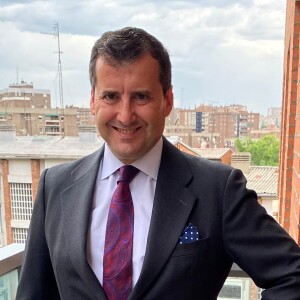
Friday Dec 16, 2022
Friday Dec 16, 2022
For those interested in the extensive written version on which this short talk is based, please contact the author at jfartaloytia@gmail.com .
From the Freudian conception of psychic bisexuality to the current approaches of transgenderism, the question of gender has knocked at the door of psychoanalysis to account for its articulation in the social context of its time. The different ways that people position themselves in life, confronts us with the challenge of thinking psychoanalytically about gender today.
Thus, this episode is entitled “Why and what is gender for?”.
Juan Francisco Artaloytia takes up this question. He talks about how and why gender emerged in the history of language and the species, and to what extent gender is still as important as it was in its origins.
Link to the paper https://docs.google.com/document/d/1QTbz_6lIbJRrl4N4QBwRwSAWZoP7vlgG/edit?usp=share_link&ouid=112457875385152358388&rtpof=true&sd=true
Juan Francisco Artaloytia holds a PhD, is a medical doctor, a psychiatrist and training Psychoanalyst of the Psychoanalytic Association of Madrid. He has been Secretary and Editor in Chief of the Journal of Psychoanalysis of the APM. He is currently Representative for Europe on the Board of the International Psychoanalytic Association. He has published articles and given lectures in national and international media. Freudian metapsychology is his field of reference, and topics of his special interests are psychosis, psychoanalytic training, and issues such as homosexuality and transsexuality. He has just published the book "Una metapsicología freudiana para el siglo XXI" (A Freudian metapsychology for the twenty-first century), which is a recapitulation of his work over the last 15 years.
this episode is available also in Spanish
This Podcast Series, published by the International Psychoanalytical Association, is part of the activities of the IPA Communication Committee and is produced by the IPA Podcast Editorial Team. Head of the Podcast Editorial Team is Gaetano Pellegrini. This episode was produced in collaboration with Ana Maria Martin Solar.
Editing and Post-Production: Massimiliano Guerrieri.
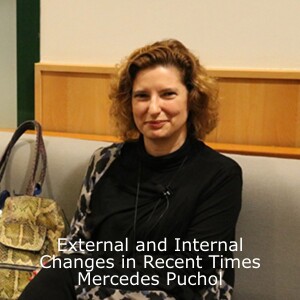
Monday Nov 21, 2022
Monday Nov 21, 2022
How do recent external and internal changes emerge in the theoretical-technical and clinical understanding of psychoanalysis today? How to think psychoanalytically about the topic of war today more than ever?
In this episode entitled External and internal changes in recent times, Mercedes Puchol reflects, among other things, on the impact of these changes in relation to remote analysis, and considers the notion of analysability, originally postulated by Carlos Paz in 1971, to be fundamental for thinking about all the challenges and questions that remote analysis raises.
Finally, the author, faced with the level of destruction and pain that the Russian invasion of Ukraine has caused, reflects on the importance of identifications in the "construction of emotional ties that operate against war (Freud, 1933)".
Mercedes Puchol is a clinical psychologist and psychoanalyst. She lives and works in Madrid with adults, children and adolescents. She is training analyst of the Madrid Psychoanalytical Association (APM) as well as its current President. She is a member of the Organising Committee of the Spanish Language Psychoanalysts Encounters and of the Committee of the European Psychoanalytic Conference for University Students (EPCUS).
Link to the paper https://docs.google.com/document/d/1mSeD-BL9yahdsV3XzfbovanCwRnXkp8S/edit?usp=share_link&ouid=112457875385152358388&rtpof=true&sd=true
This episode is available also in Spanish
This Podcast Series, published by the International Psychoanalytical Association, is part of the activities of the IPA Communication Committee and is produced by the IPA Podcast Editorial Team. Head of the Podcast Editorial Team is Gaetano Pellegrini. This episode was produced in collaboration with Ana Maria Martin Solar.
Editing and Post-Production: Massimiliano Guerrieri.
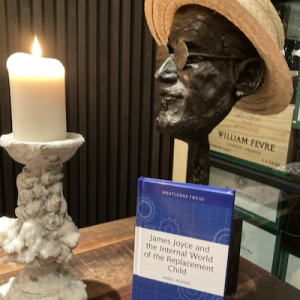
Monday Nov 07, 2022
Monday Nov 07, 2022
In this episode, Mary Adams delve into issues related to the trauma of being a replacement child. She illustrates this with the example of James Joyce, as "he seemed to overcome the debilitating effects of this early trauma and survivor guilt by using his writing".
Mary Adams is a psychoanalyst with the British Psychoanalytic Association, having completed her training in 1996. She was a training analyst with the Association of Child Psychotherapists, has a particular interest in the work of Donald Meltzer and has written several papers using his ideas. She is a past editor of the Journal of the British Association of Psychotherapy. Her book on James Joyce as a replacement child was published by Routledge in 2022.
Link to the paper https://docs.google.com/document/d/1-hL8XbcupQQXAwbwh4ow4hQkBwccIyTo/edit?usp=share_link&ouid=112457875385152358388&rtpof=true&sd=true
Further reading on the Replacement Child:
Anisfeld, L., & Richards, A. D. (2000). The replacement child: Variations on a theme in history and psychoanalysis. Psychoanalytic Study of the Child, 55: 301–318.
Capps, D. (2012). The Replacement Child: Solomonic Justice and the Sublimation of Sibling Envy American Imago, 69(3): 385-400
Pollock, G. H. (1972). Bertha Pappenheim's Pathological Mourning: Possible Effects of Childhood Sibling Loss. J. Amer. Psychoanal. Assn., 20:476-493
Pollock, G. H. (1978). On Siblings, Childhood Sibling Loss, and Creativity. Annual of Psychoanalysis 6:443-481
Reid, M. (1992). ‘Joshua — Life after death. The replacement child’, Journal of Child Psychotherapy, Vol. 18, 2. Pp. 109-138.
Sabbadini, A. (1988). The Replacement Child. Contemporary Psychoanalysis. 24: 528-547.
Schellinski , K. (2019). Individuation for Adult Replacement Children: Ways of Coming into Being. Routledge
Schwab, G. (2009). Replacement children: The transgenerational transmission of traumatic loss. American Imago 66 (3), 277-310.
Silver, D. (1983). The Dark Lady: Sibling loss and mourning in the Shakespearean sonnets. Psychoanalytic Inquiry, 3: (3): 513–527.
Storey, D. (2021). A Stinging Delight. David Story: A Memoir. Faber & Faber.
Whitebook, J. (2017). Freud. An Intellectual Biography. Cambridge UP
Wilson, E. (1988). Stendhal as a Replacement Child: The Theme of the Dead Child in Stendhal's Writings. Psychoanalytic Inquiry, 8:108-133
This Podcast Series, published by the International Psychoanalytical Association, is part of the activities of the IPA Communication Committee and is produced by the IPA Podcast Editorial Team. Head of the Podcast Editorial Team is Gaetano Pellegrini. Editing and Post-Production: Massimiliano Guerrieri.
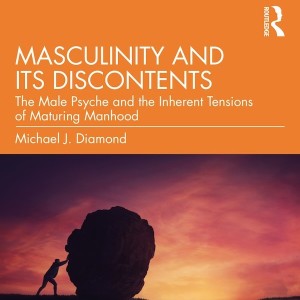
Wednesday Oct 26, 2022
Wednesday Oct 26, 2022
The paternal function is one of the most embedded concepts both in the singular dimension of clinical thinking and in the extended of social functioning. It underlies, for example, one of the foundational elements of the psychoanalytic method: the very idea of “Analytic Setting” could not exist without a paternal function.
In today's episode, thanks to the work of Michael J Diamond, we will explore its many aspects, including the construction of a triangular space, the role of the Third in the internal functioning of the subject, and the question of limits. We will also delve into more specific characteristics, such as the tenderness and sensory intimacy between a little boy and his father. We might say that this podcast episode is like a "child" of Michael J Diamond’s recent book published by Routledge and entitled: "Masculinity and Its Discontents”, in which he studies, as the subtitle says: “The Male Psyche and the Inherent Tensions of Maturing Manhood”.
Link to download the paper https://docs.google.com/document/d/1QfcWssRszuStn90QjrWXh7YvvDfGCw3A/edit?usp=sharing&ouid=112457875385152358388&rtpof=true&sd=true
Michael J. Diamond, PhD, FIPA is a Training and Supervising Analyst at the Los Angeles Institute and Society for Psychoanalytic Studies. His major publications are on psychoanalytic technique and analytic mindedness; masculinity, femininity, and gender theory; fathering and the paternal function; trauma and dissociation; hypnosis and altered states; and group processes and social action. He has written five books including today’s featured book on Masculinity and Its Discontents: The Male Psyche and the Inherent Tensions of Maturing Manhood published by Routledge. His most recent book on applied psychoanalysis, Ruptures in the American Psyche: Containing Destructive Populism in Perilous Times, was just published (by Phoenix Publishing). His other major books include My Father Before Me: How Fathers and Sons Influence Each Other Throughout Their Lives and an edited book on The Second Century of Psychoanalysis: Evolving Perspectives on Therapeutic Action (with Chris Christian). He is the honored recipient of numerous awards for his teaching, writing, and clinical contributions, and has a full-time clinical practice in Los Angeles, California where he remains active in teaching, supervising, and writing.
Selected Recommended Readings for Michael J. Diamond’s Podcast
Blos, P. (1985). Son and Father: Before and Beyond the Oedipus Complex. New York: Free Press.
Corbett, K. (2009). Boyhoods: Rethinking Masculinities. New Haven, CT: Yale University Press.
Diamond, M. J. (2004). The shaping of masculinity: revisioning boys turning away from their mothers to construct male gender identity. Int. J. Psychoanal., 85:359–380.
Diamond, M. J. (2006). Masculinity unraveled: the roots of male gender identity and the shifting of male ego ideals throughout life. J. Amer. Psychoanal. Assn., 54:1099–1130.
Diamond, M. J. (2007). My Father Before Me: How Fathers and Sons Influence Each Other Throughout Their Lives. New York: Norton.
Diamond, M. J. (2015). The elusiveness of masculinity: primordial vulnerability, lack, and the challenges of male development. Psychoanal. Q., 84:47–102.
Diamond, M. J. (2017). The missing father function in psychoanalytic theory and technique: the analyst’s internal couple and maturing intimacy. Psychoanal. Q., 86:861–887.
Diamond, M. J. (2020). The elusiveness of “the feminine” in the male analyst: living in yet not being of the binary. Psychoanal. Q.,89:503–526.
Diamond, M. J. (2021). Masculinity and Its Discontents: The Male Psyche and the Inherent Tensions of Maturing Manhood. London: Routledge.
Freud, S. (1905). Three essays on the theory of sexuality. S. E., 7:130–243.
Friedman, R. C. & Downey, J. L. (2008). Sexual differentiation of behavior: the foundation of a developmental model of psychosexuality. J. Amer. Psychoanal. Assn., 56:147–175.
Glasser, M. (1985). The “weak spot”—some observations on male sexuality. Int. J. Psychoanal., 66:405–414.
Laplanche, J. (1997). The theory of seduction and the problem of the other. Int. J. Psychoanal., 78:653–666.
Lax, R. F. (1997). Boys’ envy of mother and the consequences of this narcissistic mortification. Psychoanal. Study Child, 52:118–139.
Moss, D. (2012). Thirteen Ways of Looking at a Man: Psychoanalysis and Masculinity. London: Routledge.
Stoller, R. J. (1985). Presentations of Gender. New Haven, CT: Yale University Press.
This Podcast Series, published by the International Psychoanalytical Association, is part of the activities of the IPA Communication Committee and is produced by the IPA Podcast Editorial Team. Head of the Podcast Editorial Team: Gaetano Pellegrini. Editing and Post-Production: Massimiliano Guerrieri.
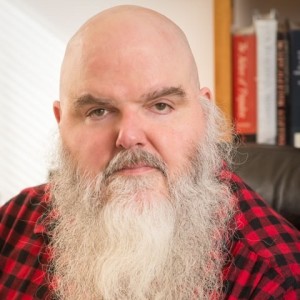
Monday Oct 03, 2022
Monday Oct 03, 2022
Veterans come home from war with shifted personalities, survival guilt after having lost comrades in battle, denial of feelings and shattered selves. A holding environment of safety if they ever had one is lost. How can a clinician gain the veteran’s trust and create the transitional space necessary for therapy that heals? In this podcast we will listen to Andrew Berry’s paper “The Interpersonal Psychoanalytic Approach to Working with Veterans where he takes a view of war veterans from an interpersonal perspective by seeking the deeper psychological meaning of posttraumatic stress disorder or PTSD. Exploring the veterans ‘relationships with others, provides meaning without which healing cannot be attained.
Andrew Berry holds a Ph.D., and a Psy.D. in psychology. He practices as a psychologist and psychoanalyst in Niskayuna, New York. He specializes in PTSD and other mental health needs of veterans. He has published on this topic and lectures at analytic institutes, and both national and international conferences. He completed a for year psychoanalytic program from the William Alanson White Institute in New York City in 2012.
Link to the original paper, published in Division Review. A Quarterly Psychoanalytic Forum in 2018. https://pep-web.org/search?preview=DR.018.0040A&q=Berry
This Podcast Series, published by the International Psychoanalytical Association, is part of the activities of the IPA Communication Committee and is produced by the IPA Podcast Editorial Team. Head of the Podcast Editorial Team is Gaetano Pellegrini. Editing and Postproduction: Massimiliano Guerrieri.
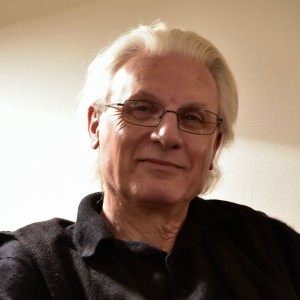
Monday Sep 12, 2022
Monday Sep 12, 2022
The impact of reality on the psychoanalytical treatment and on the work of renunciation of the patient and the analyst.Which realities are involved in the cure?
In this episode Bernard Chervet talks about the impact of reality on psychoanalytic treatment. In light of recent contexts of the global pandemic and upheavals it has caused, Bernard Chervet offers us a theoretical exploration of different notions of reality which confront the analyst. By redefining the terms intrusion, irruption and break-in, and by showing the correlation between internal and external realities, he explains how a traumatic external reality bursting into the treatment re-enacts infantile sexuality from childhood when the difference between the sexes was discovered. He shows us how the analyst, guardian of psychic life, must take all these realities into account in his work with his patients. The analyst must respect and even favour a time of immobilisation and temporary denial linked to a shock without losing sight of resuming the analytical process in a second phase in order to achieve a regeneration of the libido, the very objective of dream work and session work.
Bernard Chervet is a French psychiatrist and psychoanalyst. He lives and works in Paris and Lyon. He is a training psychoanalyst of the Psychoanalytic Society of Paris (SPP), he was a Former President of the SPP. He is a representative on the IPA Board and on the IPA Executive Committee. He is Scientific Director of the Congress of French speaking Psychoanalysts (CPLF), Founder of SPP Editions and he has authored numerous publications in French and international journals. He was the winner of the french Maurice Bouvet Prize in 2018 for his complete works. As the key-note speaker at the CPLF on the theme "Après-coup", he is the author of “Après-coup in Psychoanalysis: The Fulfilment of Desire and Thought” (to be published in 2022 by Routledge). Finally, he is also contributor to the IPA encyclopedic dictionary.
A subtitled version of this podcast is available on our YouTube channel:https://youtube.com/playlist?list=PLhxiwE76e0QaOquX3GujdwNLFsgxUQNXz&si=yf381EDu3pess6Yz
This episode has been produced in collaboration with Julia-Flore Alibert.
This Podcast Series, published by the International Psychoanalytical Association, is part of the activities of the IPA Communication Committee and is produced by the IPA Podcast Editorial Team.
Head of the Podcast Editorial Team: Gaetano Pellegrini.Editing and Post-Production: Massimiliano Guerrieri.
Link to the paper https://docs.google.com/document/d/1ixWEPk_P7UaIBlGDwM2OtHEM-MzTSZ5l/edit?usp=sharing&ouid=112457875385152358388&rtpof=true&sd=true
This episode is available also in French
References:
Chervet, B. (2022) The Case of J: Returning to the Office. International Journal of Psychoanalysis 103:518-523
Chervet, B. (2021) The Traumatic and the Work of the Après-Coup in Freud’s Opus. International Journal of Psychoanalysis 102:765-777
Chervet, B. (2020) The case of J: Working as a psychoanalyst during the Pandemic. International Journal of Psychoanalysis 101:784-790
Chervet, B. (2013) André Green 1927-2012: An Artisan of the Future. International Journal of Psychoanalysis 94:157-166
Chervet, B. (2010) La tentation psychotique [The Psychotic Temptation] by Liliane Abensour Presses Universitaires de France, Paris, 2008; 206 pp.. International Journal of Psychoanalysis 91:448-454
Bernard Chervet: Eros idealized and the life drive de-idealized. Session work and the reference to an ideal psychic functioningPre published papers 2022 — 6 juil. 2022Bernard Chervet: Which Reality Testing for Psychoanalysis in the Post-Truth Era? From Kettle Logic to the Witch Trial— 1 Dec. 2021Bernard Chervet: The Après-Coup: Form and Formlessness in Dream-Work and Unconscious Formations. The Formal Regression to Formlessness and the Manufacturer of Forms - from Bulletin 67, 2013— 5 Nov. 2020Bernard Chervet: Sensual Regression and Emergence of Erotogenicity Following Sensual Regression Within SessionsBulletin 73, 2019 — 19 Nov. 2019Bernard Chervet: The paths (x) of authority or How can psychoanalysts lack judgement ? 13 Feb. 2016Bernard Chervet: Too Much … Too Little … Two Reminiscences of the Traumatic Dimension in Psychoanalytic SessionsBulletin 69, 2015 (Page 125-137) — 1 Aug. 2015Bernard Chervet: The Après-Coup: Form and Formlessness in Dream-Work and Unconscious Formations. The Formal Regression to Formlessness and the Manufacturer of FormsPage 79-89 — 1 Oct. 2013Bernard Chervet: Opening Speech, Paris Psychoanalytic SocietyPage 11-12 — 14 Jan. 2013Bernard Chervet: The french model’s three-sessions-a-week treatment frame. Neither too much, nor not enoughEPF ; 25° Annual Conference. March the 28th 2012
Bernard Chervet: Eros idealized and the life drive de-idealized. Session work and the reference to an ideal psychic functioning. 2022 Bernard Chervet: Éros idéalisé et pulsion de vie désidéalisée. Le travail de séance et la référence à un fonctionnement psychique idéal. 2022Psychoanalysis and Covidian life – common distress, individual experience edited in French, English and Portuguese by H. B. Levine and A. de Staal, Bicester, Phoenix Publishing House, 2021, 288 pp., ISBN 978-1912691777

Thursday Aug 25, 2022
Thursday Aug 25, 2022
In this episode dr. Marion Minerbo brings us an original hypothesis about the constitution of the cruel superego – the one that, according to Freud, plants its roots in the id and is pure culture of the death drive. In her hypothesis, the hatred with which the superego attacks the ego comes from the identification with unconscious micro-vows of death that originate in the paranoid core of the parental figure. She proposes a formula that helps us to recognize that these attacks have the function of defending the parental figure's narcissism: “it's not me who... it's you who... and I hate you for that”. Within an asymmetrical relationship with the adult, the child has no alternative but to accept these beta-elements and identify with them. These identifications would then constitute the core of the cruel superego. In the original paper, she shows how these hypotheses about how the superego is constituted helps us in finding a way for its deconstruction .
Marion Minerbo, MD, PhD, is a full member and training analyst at the Brazilian Psychoanalytic Society of São Paulo. She has published dozens of articles and the following books: "Conversations on clinical practice"; "New conversations on psychoanalytical practice”; "Neurosis and non-neurosis”; "Transference and Countertransference"; "A posteriori, a journey", all by Blucher Editorial, São Paulo, all of which published in Portuguese.
In 2015, at the Brazilian Congress of Psychoanalysis, she received the main award for this paper: the Durval Marcondes Award.
This episode is available also in Portuguese
https://anchor.fm/talksonpsychoanalysis-por/episodes/Contribuies-para-uma-teoria-sobre-a-constituio-do-supereu-cruel----Marion-Minerbo-e1mv0hm
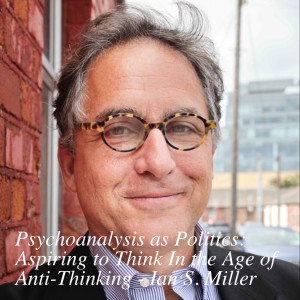
Thursday Jun 30, 2022
Thursday Jun 30, 2022
This podcast discusses the political nature of psychoanalytic audacity in our era of fake news and disinformation. Today, gullible populations accustom themselves to the lies and misrepresentations of anti-thinking, often through the rumor-mills of social media, where any and every thought, no matter how bizarre, is leveled to an equality of consideration (Frankfurt, 2005; Hayden, 2018; Lipton, 2018; Miller, 2018). Opposed to this flattening of critical meaning, is the psychoanalytic model of enlightenment through mobilization of creative thinking.
Ian S. Miller is a clinical psychologist/psychoanalyst and writer based in Dublin. His most recent book is Clinical Spinoza: Integrating his Philosophy with Contemporary Therapeutic Practice (Routledge, 2022). He is also the author of Defining Psychoanalysis: Achieving a Vernacular Expression (Karnac, 2016); On Minding and Being Minded: Experiencing Bion & Beckett (Karnac, 2015); and co-author of Beckett and Bion: The (Im)patient Voice in Psychotherapy and Literature (Karnac, 2013) as well as On the Daily Work of Psychoanalytic Psychotherapy (Routledge, 2018). He serves as Associate Editor on the American Journal of Psychoanalysis.
Link to the paper https://docs.google.com/document/d/1MFzT5Mr5XOcf8nSkZqLC6piT3qU-_Q0o/edit?usp=sharing&ouid=112457875385152358388&rtpof=true&sd=true
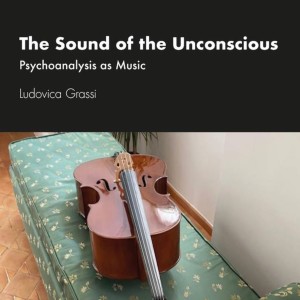
Monday May 16, 2022
Monday May 16, 2022
A few musical passages serve as examples of how music is a basic component of psychic life and unconscious functioning since the earliest sensorial experiences in utero. Both music and the psyche work through similar mechanisms such as repetition, imitation, variation (transformation), intimacy and the work of mourning, of the negative and of nostalgia. Silence and absence, as well as time and temporality, are key elements both in music and in symbolization and subjectivation processes.
Viewing music as a primal and inherent characteristic of psychic structure and functioning allows both a better understanding of somato-psychic development and a musically informed psychoanalytic listening.
Ludovica Grassi is a child neuro-psychiatrist, a full member of the Italian Society of Psychoanalysis, a qualified expert in child and adolescent psychoanalysis, and a psychoanalyst of couples and families. She is currently Treasurer of the Italian Psychoanalytic Society. Her main scholarly interests are infant psychoanalysis, ethno-psychoanalysis, and the role of music in psychic development. She has written on these topics as well as on individual, couple and family psychoanalysis. Her book The Sound of the Unconscious: Psychoanalysis as Music was published by IPA in June 2021.
Link to the paper https://docs.google.com/document/d/1mlfvAq3ejz6VsMGOxaWj1KICinvJIsB_/edit?usp=sharing&ouid=112457875385152358388&rtpof=true&sd=true
This episode is available also in Italian
CREDITS
This podcast series, published by the International Psychoanalytical Association, is part of the activities of the IPA Communication Committee and is produced by the IPA Podcast Editorial Team. Head of the Podcast Editorial Team is Gaetano Pellegrini.
Editing and Post-Production: Massimiliano Guerrieri
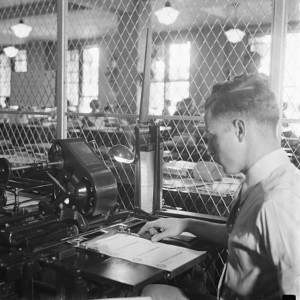
Wednesday May 04, 2022
Wednesday May 04, 2022
In this episode "Sublimation between suffering and pleasure at work", Christophe Dejours develops his theses on the psychodynamics of work, which he has particularly deepened.
He examines the work clinic from the angle of sublimation, which he breaks down into «bodypropriation», relationship to the other and relationship to civilisation; sublimation operates in all work, even the most ordinary; it has a powerful effect on identity and mental health.
Christophe Dejours shows how certain work organisations, by undermining the subjective springs of sublimation, can destabilise the individual and lead him to a psychological crisis or even to suicide.
Finally, he shows how much, according to him, living work - that is to say work enriched by what the subject adds to the prescriptions to achieve objectives - plays an essential role in the structuring and destructuring of the social link.
Christophe Dejours is a psychiatrist, a psychoanalyst, a full member and Training Analyst of the French Psychoanalytical Association and a full member of the Institute of Psychosomatics of Paris, professor emeritus of the University of Paris Nanterre and president of the scientific council of the Jean Laplanche Foundation - Institute of France.
Research on the frontiers of psychoanalysis: on the side of the biological sciences with psychosomatics and the metapsychology of the body. Worked with Pierre Marty and Michel Fain; on the side of the social sciences with the work clinic. Founded a new discipline: the psychodynamics of work taught in France and in several European countries, in Canada and in Latin America (Brazil, Argentina, Chile, Uruguay, Mexico)
Research on sexual theory, in collaboration with Jean Laplanche (between 1997 and 2012), in particular on the introduction of gender in sexual theory, on dream work, on the formation of an unrepressed unconscious and a topicality of cleavage.
He has written numerous articles and books, to name but a few:
DEJOURS C. (2015): 'PSYCHOPATHOLOGY OF WORK: Clinical Observations', Karnac Books, London, 102 pages.
DEJOURS C (2019): 'The Two Bodies: The Biological Body and the Erotic Body'. Psychoanalysis in Europe, 73: 16-27
DEJOURS C (2020): 'Psychoanalysis and the Genealogy of the Erogenous Body' Psychoanalysis.today, 12: The Body and Psychoanalysis. https://www.psychoanalysis.today/fr-FR/Home.aspx
Link to the paper https://docs.google.com/document/d/1BOOrx4U9wo-Z5IP7h4boMO5WnCHVJNtI/edit?usp=sharing&ouid=112457875385152358388&rtpof=true&sd=true
CREDITS
This podcast series, published by the International Psychoanalytical Association, is part of the activities of the IPA Communication Committee and is produced by the IPA Podcast Editorial Team. Head of the Podcast Editorial Team is Gaetano Pellegrini.
Editing and Post-Production: Massimiliano Guerrieri
Music: Chopin_Waltzes_Op.69. Performer Olga Gurevich. https://musopen.org/music/4415-waltzes-op-69/
Cover Image: Office work, Harris Ewing photographer, 1936, United States. Courtesy Library of Congress Prints and Photographs Division Washington, D.C. 20540 USA https://www.loc.gov/resource/hec.40970/
THIS EPISODE IS AVAILABLE ALSO IN FRENCH
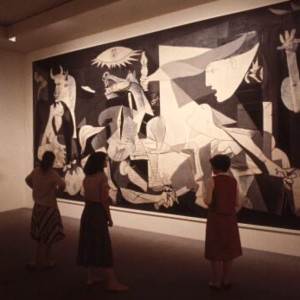
Monday Apr 04, 2022
Monday Apr 04, 2022
"Guernica" by Picasso at MOMA, NYC. Gotfryd, Bernard, photographer. Courtesy Library of Congress.
What happens when our basic trust in the world is challenged, and the social dimension of reality is disrupted as a consequence of collective trauma?In this episode, Werner Bohleber addresses the theme of traumatic experiences and does so starting from the two main models around which psychoanalytic thought has sought to understand trauma: the freudian psycho-economic model and the object-relational model.Reflecting on what he so effectively defines as "the symbolic web that carries us", Bohleber considers the implications of man-made disasters, and those that befall our individual and collective memory.
Werner Bohleber, Dr. phil, is a psychoanalyst in private practice in Frankfurt am Main. He is training analyst and former President of the German Psychoanalytical Association. He has long served on committees of the IPA, the last from 2009-2013 as Chair of the IPA Committee on Conceptual Integration. From 1997 to 2017 he was main editor of the journal PSYCHE. His research subjects and main publication themes are: late adolescence and young adulthood; psychoanalytic theory; transgenerational consequences of the Nazi period and the war on the second and third generation; nationalism, terrorism, anti-Semitism; trauma research. In 2007, he was awarded the Mary S. Sigourney Award for his diverse contributions, especially those relating to the traumatic aftermath of the Holocaust, National Socialism, and World War II.
link to the paper https://docs.google.com/document/d/18yMyiZ6darmN6ouxVoQmUwlci44UCnCQ/edit?usp=sharing&ouid=112457875385152358388&rtpof=true&sd=true
this episode is available also in German
Bibliography
Allen, J. (2013). Mentalizing in the development and treatment of attachment trauma. London: Karnac.
Amery J. (1996): Die Tortur. Merkur, 50, 502-515.
Balint M (1969). Trauma and object relationship. Int. J. Psycho-Anal. 50: 429-36.
Baranger M, Baranger W, Mom JM (1988). The infantile psychic trauma from us to Freud: Pure trauma, retroactivity and reconstruction. Int. J. Psycho-Anal. 69: 113-28.
Bohleber, W (2010). Destructiveness, Intersubjectivity, and Trauma. The Identity Crisis of Modern Psychoanalysis. London: Karnac.
Cooper, A. (1986), Toward a limited definition of psychic trauma. In: The Reconstruction of Trauma. Its Significance in Clinical Work, ed. A. Rothstein. Madison, CT: International Universities Press, pp. 41-56.
Erikson E.H. (1968): Identity. Youth and crisis. Nem York: Norton.
Ferenczi S (1949). Confusion of the tongues between the adults and the child [1933]. Int. J. Psycho-Anal. 30: 225-30.
Freud S (1920). Beyond the pleasure principle. Standard Edition 18, p. 7-64
Freud S (1926). Inhibitions, symptoms and anxiety. Standard Edition 20, p. 77-174.
Freud S. (1939). Moses and Monotheistism. SE 23: 1-138. (GW 16: 103–246)
Garland, C. (1998). Thinking about trauma. In: Garland, C. (Hg.). Understanding trauma. A psychoanalytic approach. London (Karnac).
Krystal, H. (1988). Integration and Self-Healing. Affect, Trauma, Alexithymia. Hillsdale: Analytic Press.
Langer L.L. (1995): Memory’s time: Chronology and duration in Holocaust testimonies. In: Langer, L.L.: Admitting the Holocaust: Collected essays. New York/Oxford: John Hopkins University Press, pp.13-23.
Leys R. (2000). Trauma: A genealogy. Chicago, Ill.: University of Chicago Press.
Morris D. J. (2015): The evil hours. A biography of post-traumatic stress disorder. Boston/New York: Houghton Mifflin Harcourt.
Oliner M. (2012): Psychic reality in context. Perspectives on psychoanalysis, personal history, and trauma. London: Karnac
Shalev A.Y. (1996), Stress Versus Traumatic stress. From Acute Homeostatic Reactions to Chronic Psychopathology. In: Traumatic Stress. The Effects of Overwhelming Experience on Mind, Body and Society, ed. B. van der Kolk, A., Mc Farlane & L.Weisaeth. New York NY: Guilford Press, pp. 77-101.
Steele BF (1994). Psychoanalysis and the maltreatment of children. J. Amer. Psychoanal. Assn. 42: 1001-25.
Van der Kolk B. (1996). Trauma and memory. In: B. van der Kolk, B., A. McFarlane & L. Weisath (Eds.) Traumatic stress. The effects of overwhelming experience on mind, body and society. New York: Guilford Press, pp. 279-302.
van der Kolk B. (2014): The body keeps the score. Mind, brain, and the body in the healing of trauma London: Penguin Books.
CREDITSEditing: Agustín Ruiz Brussain

Wednesday Mar 16, 2022
Wednesday Mar 16, 2022
Thoreau's cove, Lake Walden, Concord, Mass., Detroit Publishing Co., publisher, between 1900 and 1910. Courtesy Library of Congress.
Nancy Chodorow is Training and Supervising Analyst Emerita, Boston Psychoanalytic Society and Institute, Lecturer Part-time in Psychiatry at the Harvard Medical School/Cambridge Health Alliance, and Professor of Sociology Emerita, University of California, Berkeley. At UC Berkeley, she helped to create Women's Studies and was a co-founder of the University of California Interdisciplinary Psychoanalytic Consortium. She serves on the Holmes Commission on Racial Equality of the American Psychoanalytic Association and the Research Committee of the IPA, and she was recently Advisor to the Sexual and Gender Diversities Studies Committee of the IPA.
Chodorow has written on psychoanalysis and feminism, Loewald and the Loewaldian tradition, and psyche and society, recently naming an American Independent Tradition, Intersubjective Ego Psychology, whose founding theorists are Loewald and Erikson.
Her books include The Reproduction of Mothering; Feminism and Psychoanalytic Theory; Femininities, Masculinities, Sexualities; The Power of Feelings: Personal Meaning in Psychoanalysis, Gender and Culture; Individualizing Gender and Sexuality; and The Psychoanalytic Ear and the Sociological Eye: Toward an American Independent Tradition.
Her books include The Reproduction of Mothering; Feminism and Psychoanalytic Theory; Femininities, Masculinities, Sexualities; The Power of Feelings: Personal Meaning in Psychoanalysis, Gender and Culture; Individualizing Gender and Sexuality; and The Psychoanalytic Ear and the Sociological Eye: Toward an American Independent Tradition.
A book in her honor, Nancy Chodorow and The Reproduction of Mothering: 40 Years On (Bueskens, ed.) was published in 2020.
Chodorow's podcast draws on her writings on individualizing gender and sexuality, masculinities, and Freud's social writings, and on her research on early women psychoanalysts.

Sunday Feb 13, 2022
Sunday Feb 13, 2022
Flowers and Fruit in a Chinese Bowl, c. 1645, Juan de Zurbarán. Courtesy Art Institute Chicago.
What role does Pleasure occupy in human development? What influence did this theme have on the development of Freud's Psychoanalytic theory? What do we think in contemporaneity about the function of pleasure in the psyche?
In this episode we have the pleasure of listening to Dr. Rui Aragão Oliveira with his article “Why pleasure?”. Dr. Rui provides an overview of the relevance of the topic for the very emergence of Psychoanalysis, addresses the role of pleasure in the dynamic-economic balance of the psyche and its development, discusses the relationship between people and pleasure in our current society and, finally, points out aspects of pleasure in the clinical work of the analyst.
Dr. Rui Aragão Oliveira is a full member and training analyst of the Portuguese Psychoanalytic Society, the SPP, Phd in Clinical Psychology. He is the Chair of the SPP Teaching Committee and Past President of the SPP.
He was editor-in-chief of the Revista Psicanalítica Portuguesa and also editor by the IPA of the international publication Psychoanalysis.Today.
Link to the paper https://docs.google.com/document/d/1-LWo16_Lapji9PCqGOJ8d-AMztwT7twB/edit?usp=sharing&ouid=112457875385152358388&rtpof=true&sd=true
This episode is available also in Portuguese
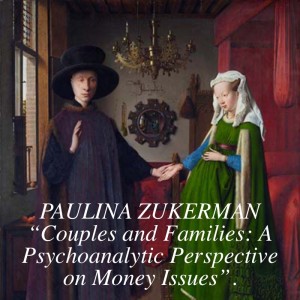
Sunday Dec 05, 2021
Sunday Dec 05, 2021
Phantasy knotted around money as a drive derivative organizes unconscious modes of family survival. Social, historical, political, and economic considerations also influence the conscious and unconscious establishment of alliances, pacts, agreements, and rules to govern family life. Is the re-drafting of laws enough to solve the permanent difficulties of equivalence when couples and families talk about money and assets?
In this episode we will listen to Paulina Zukerman’s paper: “Couples and Families: A Psychoanalytic Perspective on Money Issues”, in which she considers unconscious stipulations to be an illusory attempt to lessen the uncertainty of otherness. She draws references to Freud, Isidoro Berenstein and René Kaës.
Paulina Zukerman holds a PhD and is a full member and training analyst at the Psychoanalytic Association of Buenos Aires. She is the director and tenured professor for the Master’s Degree Program on Family and Couples at the University Institute of Mental Health of the Buenos Aires Psychoanalytic Association and in Maringa, Brazil. She has published in several psychoanalytic reviews and works in private practice in Buenos Aires.
Link to the paper https://docs.google.com/document/d/1dCAV8MAr-v8unphRsv1psnjRUF-DcR2i/edit?usp=sharing&ouid=112457875385152358388&rtpof=true&sd=true
This paper is also available in Spanish
Paulina Zukerman has also published articles in psychoanalytic journals:
“Apuntes para una psicopatologia de la economia cotidiana: El dinero en la clínica vincular” (2020): “Notes for a psychopathology of day-to-day home economics: money in clinical practice with linked patients.” Revista de Psicoanálisis de Guadalajara, N° 14, México.
“Intimidad en los vínculos familiares. Reflexiones a partir de diversas investigaciones”. (2017) “Intimacy in family links”: IPA Congress. Revista Psicoanálisis. Vol. XXXIX, N° 1-2.
“Sull'assimmetría nei patti e accordi familiari.” Family pacts and agreements:
about asymmetry”: Revista de la Societá Italiana di Psicoterapia Psicoanalítica (S.I.P.P.)(2006).
Zukerman PhD thesis, University of Buenos Aires, 2015: “Conceptual analysis of the relationship between unconscious pacts and agreements and the circulation of money in families and couples”.
The Arnolfini Portrait, 1434, Jan van Eyck. Courtesy National Gallery, London.
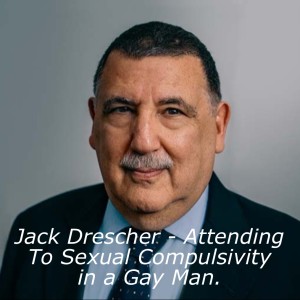
Sunday Nov 14, 2021
Sunday Nov 14, 2021
Themes of hiding abound in the developmental narratives of boys who grow up to be gay. Their need to hide is reinforced by the traumatizing public humiliation that ensues from either open expressions of same-sex desire or gender- nonconforming behavior. The experience of being discovered, punished, and humiliated for showing or acting on such feelings or behaviors can lead to hiding activities that persist long after the actual trauma is forgotten. When open expressions of same-sex intimacy are driven underground, clandestine and forbidden sexual activities, highly tinged with interpersonal anxiety, may become a significant mode of relatedness. This papers offers a clinical psychoanalytic approach for working with gay men that distinguishes the concept of sexual compulsion from that of sexual identity. Harry Stack Sullivan’s conceptualization of dissociative defenses is useful in clinically understanding and therapeutically working with gay men in general, and with sexually compulsive gay men in particular. This approach allows the sexual identities of gay men to be respected while addressing the compulsive behaviors that some of them find so troubling.
Jack Drescher is a psychiatrist and psychoanalyst in private practice in New York City, a Clinical Professor of Psychiatry at Columbia University and a Faculty Member of their Psychoanalytic program and their Division of Gender, Sexuality and Health. He is an adjunct Professor at the New York University Postdoctoral Program in Psychotherapy and Psychoanalysis and a Training and Supervising Analyst at the William Alanson White Institute. He also serves as a consultant to IPA’s Committee on Gender and Sexual Diversity.
SELECTED PRESENTATIONS AND PUBLICATIONS
Reed GM, *Drescher J, Krueger RB, Atalla E, Cochran SD, First MB, Cohen-Kettenis PT, et al. Revising the ICD-10 Mental and Behavioural Disorders classification of sexuality and gender identity based on current scientific evidence, best clinical practices, and human rights considerations. World Psychiatry, 15:205–221.
Drescher J, Schwartz A, Casoy, F, McIntosh CA, Hurley, B, Ashely K, et al: The growing regulation of conversion therapy. Journal of Medical Regulation, 102(2):7-12.
Drescher J, Cohen-Kettenis PT, Reed GM: Gender incongruence of childhood in the ICD-11: Controversies, proposal, and rationale. Lancet Psychiatry, 2016, 3:297-304.
Drescher J, Cohen-Kettenis PT, Winter S: Minding the body: Situating gender diagnoses in the ICD-11. International Review of Psychiatry, 2012, 24(6): 568–577.
Drescher J: Queer diagnoses: Parallels and contrasts in the history of homosexuality, gender variance, and the Diagnostic and Statistical Manual (DSM). Archives of Sexual Behavior, 2010, 39:427–460.
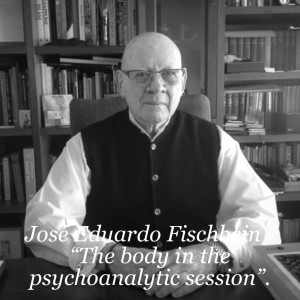
Monday Nov 01, 2021
Monday Nov 01, 2021
This paper aims at categorizing two types of discourse with which the body is referred to. It is based on the model of psychic apparatus as presented in Chapter VII of The Interpretation of Dreams, using it as a conceptual instrument for reading the clinical material in the session. These are the discourse of the "evoked body" and the one on the "perceived body". The former historicizes memories and bodily experiences, while the latter alludes almost exclusively to the present of perception and the recording of what has been done.
The discourse of the evoked body corresponds to the field of defensive formations—the expression of a conflictive situation for the mind—, in which different types of acting psychic defences can be distinguished. It is a discourse on the body constructed by representations of the oedipal linking framework. The discourse of the perceived body conveys a body that focuses on references to the perception of economic excitatory aspects; it is rich in its allusions to sensations and experiences that have their axis in bodily functions. It talks about the perception of well-being vs. discomfort, pain vs. absence thereof, increasing tension or discharge processes.
Dr. José Eduardo Fischbein
MD from the University of Buenos Aires, graduated with Honours Diploma.
Specialist in Psychiatry, National Ministry of Health.
Full Member and Training Analyst of the Argentine Psychoanalytic Association (APA), Latin American Federation of Psychoanalysis (FEPAL), International Psychoanalytic Association (IPA).
Specialized in Child and Adolescent Psychoanalysis, APA, FEPAL, IPA.
Master in Psychoanalysis, National University of La Matanza [UNLAM]
Elected Director of the Department of Psychosomatics of APA in several administrations, most recently from 2012 to 2016.
APA Vice President, 2018-2020
Chair of the Research Group "The body in the psychoanalytic session" (2010 - 2020)
He has published numerous articles (approx. 65) in Argentine and foreign reviewed journals (Int. J. Psychol., Revista de Psicoanálisis, APA; Psicoanálisis, APdeBA), as well as chapters in several books.
Link to the paper https://docs.google.com/document/d/1--skeUZx8K4J_T12BhbU5LG-FhALv8N1/edit?usp=sharing&ouid=112457875385152358388&rtpof=true&sd=true
This episode is available also in Spanish
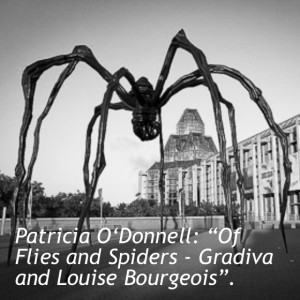
Tuesday Oct 19, 2021
Tuesday Oct 19, 2021
In this episode we come back to deal with Psychoanalysis and Art, through the work of Louise Bourgeois and a small novel very dear to psychoanalysis: "The Gradiva (a Pompeian fantasy)”, written by W. Jensen in 1903.
Patricia O'Donnell presents her paper titled: “Of flies and spiders - Gradiva and Louise Bourgeois" and reports that a particular comment inside the book plus the added role of flies with their multiple meanings in the novel were the triggers for thinking about the French artist.
"Maman", for instance, the gigantic sculpture of a spider in steel and marble, is the paradigm of a theme repeatedly evoked in the writings and works of the artist, who gave these attractive and fearsome creatures a variety of interpretations.
This presentation, which explores and interweaves some biographical information, such as her mourning, the discovery of the difference between the sexes, her writings, her sculpture "Arch of Hysteria”, is an attempt to give us a glimpse into an artistic universe, which expands like a spider's web.
The research into how she constructed the phantasmagoria around the spider constituted a psychoanalytical aesthetic experience with a body of work that invokes a past that travels through time in the face of an unknown future.
Perhaps the spider as an apotropaic and talismanic figure is a defence against the fantasies of death and vulnerability that are so poignant in today's world.
Patricia O'Donnell
Psychiatrist and Psychoanalyst. Full Member and Training Analyst of the Argentine Psychoanalytic Association (APA). Member of the International Psychoanalytic Association. Coordinator of the APA Culture Commission (2017 - 2020).
Associate Professor at the Department of Mental Health at the Hospital de Clínicas José de San Martín where she created and directed the Free Expression Workshop (2016 - 2020). She has begun psychoanalytic research into naïve art.
She started her training in Psychoanalysis and Art with Dr. María Cristina Melgar, who together with Dr. Eugenio López de Gomara, were the pioneers, in 1960, of research into psychotic art in Argentina.
She gave lectures and training sessions to the guides for the exhibition: “Louise Bourgeois. The return of the repressed” at the Department of Education in the Proa Foundation (2011).
She has presented papers at national and international conferences; and publications, workshops and lectures on psychoanalytic art research in different academic fields.
She was shortlisted as a finalist for the Lucian Freud Award, 2014 and is Secretary of the Redes Solidarias Foundation.
She is the co-author of the books:
“The New. Lucian Freud. A psychoanalytical reflection on the enigma of the body and the world".
“Psychoanalysis and Art. From the psychoanalytic method to the encounter with the enigmatic in the visual arts”.
“Topica. Literature and Cinema. Encounters with Psychoanalysis: Louise Bourgeois and the Arch of Hysteria”.
“Women's Forum: Lee Miller”.
Link to the paper https://docs.google.com/document/d/1GOyFfPvc9VEchdeuEcjSBbWWQu-tJuGP/edit?usp=sharing&ouid=112457875385152358388&rtpof=true&sd=true
This episode is available also in Spanish
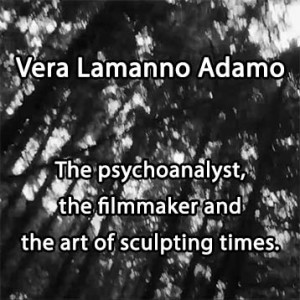
Tuesday Oct 05, 2021
Tuesday Oct 05, 2021
How deep and historically grounded is the intertwining of cinema and psychoanalysis? In this episode, we'll listen to Vera Lamanno Adamo on the crafts of filmmaking and psychoanalysis as the art of sculpting time. She weaves correlations between the construction of a film and the analytic process, and draws a parallel between the history of cinema and the history of psychoanalysis.
This episode refers to an article published in Calibán, Latin American Journal of Psychoanalysis, vl.18, n.2, 2020.
Vera Lamanno Adamo is a training and supervising analyst of the Brazilian Psychoanalytic Societies of São Paulo and Campinas. She has published seven books. Her latest are “Work of the Negative”, “Living on the border: psychoanalysis and art”, “In Corners of Life Death Charms” (in Portuguese), and “Teresa Margarida: the audacity of a woman in the 18th century” (in Portuguese).
In 2012, she received the Psychoanalysis and Freedom award from the Psychoanalytic Federation of Latin America for her contribution to the theoretical and clinical development of psychoanalysis, and in 2013 she received the Revista Brasileira de Psicanálise award.
This episode is available also in Portuguese
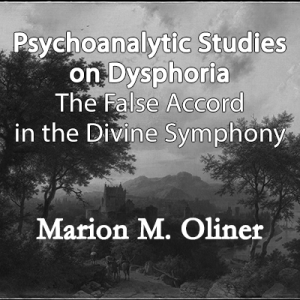
Thursday Sep 23, 2021
Thursday Sep 23, 2021
What is the role of external reality in the formation of traumatic experiences? And how much does this still determine the overcoming of the profound dysphoria that affects certain individuals?
With a highly personal and original view on the functioning of the mind from a psychoanalytic perspective, Marion Oliner accompanies us in this episode through a reflection on the impact of catastrophic events on the lives of individuals and th eir descendants.
Through her voice we will encounter Diderot, Proust and Baudelaire, Grubrich-Simitis and Winnicott; the tragedy of Nazism and the memorable beauty of the vineyards along the Rhine.
Marion M. Oliner has been active in her private practice, teaching, supervising, as a speaker, and as a member of many committees, as well as in the governance of the New York Freudian Society. She is a member of the International Psychoanalytic Association and on the faculty of the New York Freudian Society, the National Psychological Association for Psychoanalysis, and the Metropolitan Institute for Psychoanalytic Psychotherapy.
This episode is inspired by the book published in 2018 by Routledge, titled: "Psychoanalytic Studies on Dysphoria: The False Accord in the Divine Symphony".
link to the paper https://drive.google.com/file/d/1jUQ7U0ZAVNUS5TsWjxkCfv1UqDuJWG36/view?usp=sharing
Sunset on the Rhine, 1853. Barend Cornelis Koekkoek. Courtesy Met Museum, New York.
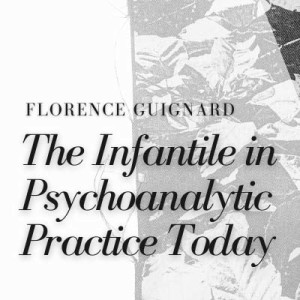
Sunday Sep 12, 2021
Sunday Sep 12, 2021
One day, in 1996, with a leap from adjective to noun, a new concept arose within psychoanalytic thought: the Infantile. This term remained so pertinent over time that it has become the core of the title of the 52nd IPA Congress.
Florence Guignard was the author who first formulated it in such an accomplished form, and in today's episode she draws important clinical consequences from the theoretical reflection on this concept concerning the analytic relationship and the interpretative activity of the psychoanalyst in their daily work.
The Infantile -with a capital “I”- is a limit-concept, which aims at describing a "flexible" structure, at the limits of our animality, at the borders of our Unconscious and our Preconscious system. Being the first and main means of organization of our Ego drives, the Infantile is also the place of our primary fantasies and of the mnemonic traces of our first sensory-motor experiences. It is the most acute point of our emotions and feelings in their non-verbal state.
Florence Guignard describes how the patient’s Infantile and the analyst’s Infantile are interweaving in the transference-countertransference situation, as beautifully illustrated by Mikael Vilchez artistic creation, enriched by Rhoda Bawdekar’s interpretation of it. Florence Guignard shows us how the Infantile can serve as a lever in the case of blind spots and stopper interpretations.
A clinical example of a blind spot in the analyst will be published in the second volume of “Psychoanalytic Concepts and Technique in Development. The psychoanalyst in the city”.
Florence Guignard is a Swiss and French psychoanalyst, Training analyst of the Paris Society and a direct member of the IPA for the Training in Child and Adolescent Psychoanalysis. She co-founded the European Society for Child and Adolescent Psychoanalysis.
She is an internationally renowned author and since 1970 her work, translated into several languages, notably on female sexuality and the child, has contrìbuted significantly to the renewal of psychoanalytical thought.
link to the paper https://docs.google.com/document/d/1UC1QF8Yirl8CZ5i42rWwTxvD5_qfwc5B/edit?usp=sharing&ouid=112457875385152358388&rtpof=true&sd=true
This episode is available also in French
Credits© Forbidden Denimeries by Mikael Vilchez, 2021Visual editing and design, Rhoda BawdekarMusic, Chopin Ballade no. 4, Op. 52

Thursday Aug 26, 2021
Thursday Aug 26, 2021
In this episode we’ll listen to Christine Anzieu-Premmereur on the construction of auto-eroticism and the ability to fantasize-dream at the dawn of life.
Christine Anzieu-Premmereur is a PhD Psychologist trained in Paris, an Adult and Child Psychiatrist and Psychoanalyst, member of the Société Psychanalytique de Paris. She moved from Paris to New York in the year 2000 where she has her private practice.
She is a faculty teacher at the Columbia Psychoanalytic Center for Training and Research where she is the director of the Parent-Infant Psychotherapy Training Program, and Assistant Clinical Professor in Psychiatry at Columbia University.
She is the chair of the IPA Committee for Child and Adolescent Psychoanalysis and a member of the New York Psychoanalytic Institute. She chairs the discussion group on Parent-Infant Programs at Psychoanalytic Institutes at the American Psychoanalytic Association meetings.
She has published several articles and chapters on her work as a psychoanalyst of adults, children, and infants with their parents, including recently "A Psychoanalytic Exploration of the Body in Today's Psychoanalysis" published by Routledge, and has collaborated with Dunod on "Le jeu en psychanalyse d'enfants" (Playing in child psychoanalysis) and "Pratiques psychanalytiques avec les bébés" (Psychoanalytic practices with babies).
link to the paper: https://drive.google.com/file/d/1UDFE2VmMO8nhSSliHL5WzPSgKXNYFit1/view?usp=sharing
this episode is available also in French
A Circular ceiling design with clouds and roses, second half 19th century. Jules-Edmond-Charles Lachaise. Courtesy Met Museum, New York.
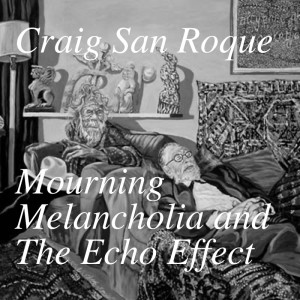
Tuesday Jun 29, 2021
Tuesday Jun 29, 2021
Interpretation of Dreams, by Rod Moss
Craig San Roque, community psychologist and psychotherapist has, for the past 30 years lived in Central Australia working within indigenous Australian circumstances. He has written many careful accounts of the existential realities of intercultural collaborations and tensions. Trained in London, with the Society for Analytical Psychology, he cautiously adapts and applies psychoanalytic insights to help negotiate the rough environment of Aboriginal/white Australian relations.Mourning Melancholia and The Echo Effect - on aspects of unconscious transference within black/white relations - is distilled from experience in a project co-developed with indigenous friends who are part of the Central Australian NPY Women’s Council, Uti Kulintjaku/Clear Thinking project, initiated by traditional healers (Ngangkari).
The Passion, by Rod Moss
References to the Uti Kulintjaku projects, including evaluations by Samantha Togni may be found through the NPY Women’s Council website - npywc.org.au - see section on Ngangkari-traditional healers and Uti Kulintjaku project.NPY Women’s Council is an Anangu led organisation that delivers heath, social and cultural services in the Ngaanyatjarra Pitjantjatjara Yankunytjatjara (NPY) region of Central Australia.
Link to the paper https://drive.google.com/file/d/1vCDPRxFRbe11hJh-N8pQzhE0fV7p-2tI/view?usp=sharing

Tuesday Jun 22, 2021
Tuesday Jun 22, 2021
In preparation for the 52nd IPA Congress, we will present a number of episodes dedicated to the activities that will take place and its theme: THE INFANTILE: ITS MULTIPLE DIMENSIONS.
Please visit ipa.world/theinfantileonline to explore the extensive program and to register. The 52nd IPA Congress will be held online from July 21st to August 1st, and by visiting our program you can set your schedule to suit your personal time zone.
In this episode we’ll listen to Laura Colombi talking about the paper titled: “The dangerous call of the wild. Clinical considerations about dissociation into fantasy”.
Here she discusses how fantasizing, understood as a flight into fantasy, belongs to a type of mental functioning as opposed to that of imaginative fantasy. The Author follows Winnicott’s idea that withdrawal into fantasy can take on a dissociative quality, which is structured early on as a defensive solution following the loss of hope in object relations.
Such defence becomes the foundation for a dangerous enclave in which the subject ends up enclosing himself, experiencing an illusory self-sufficiency which is nourished with omnipotence and sensory pleasure.
From this perspective, the Author suggests that the withdrawal into fantasy must be understood as a risky factor of emptying the Self or of a crystallization into psychopathological structures. This way, it could become an automatic activity of ‘non-thought’ that replaces the working-through processes necessary for the development of the mind.
Clinical material, omitted in the podcast, of both children and adults will illustrate how the flight into fantasy, over time, may take the form of an anti-relational realm of the mind, compromising the operations necessary for the integration of psychic life.
Laura Colombi is Training Analyst of the Italian Psychoanalytical Society and Analyst for Children and Adolescents. She has been working on the educational and theoretical levels on disorders related to the pathology of primitive psychological organization and weaves together interests from the clinic of children and adult patients with severe psychopathology and identity disorders. On the topic of 'dissociation into fantasy' she has published in the International Journal of Psychoanalysis and in the Italian Psychoanalytic Journal.
This episode is available also in Italian
Clearing in the Forest (1880), Rodolphe Bresdin. Etching on cream laid paper. The Art Institute of Chicago.
Debussy Rêverie, Constantin Stephan.
We are pleased to announce that Talks On Psychoanalysis has been selected in the Top 15 Psychoanalysis Podcasts list by Feedspot and that in this moment we are first in the ranking. Feedspot editorial team extensively searched on Google and social media websites to find the best Psychoanalysis Podcasts and ranked them based on several factors such as:
Podcast content quality
Post consistency
Age of the podcast
Average number of shares on social sites
Traffic of your podcast and more.

Monday Jun 14, 2021
Monday Jun 14, 2021
In preparation for the 52nd IPA Congress, we will present a number of episodes dedicated to the activities that will take place and its theme: THE INFANTILE: ITS MULTIPLE DIMENSIONS.
Please visit ipa.world/theinfantileonline to explore the extensive program and to register. The 52nd IPA Congress will be held online from July 21st to August 1st, and by visiting our program you can set your schedule to suit your personal time zone.
In this episode Katy Bogliatto -child psychiatrist, psychoanalyst and member of the Belgian Psychoanalytic Society- shares some thoughts from her practice as a psychoanalyst within a Medically Assisted Reproduction team.
Dr Katy Bogliatto is a child psychiatrist, psychoanalyst, member of the Belgian Psychoanalytic Society. She’s General Secretary to the Board of her Society and was the past treasurer of the EPF Executive during Dr Jorge Canestri’s Presidency. She is European member of the Business and Finance Committee of IPA. She is member of the Editor’s Board of the Revue Belge de Psychanalyse (Belgian Psychoanalytic Revue). She teaches at the Free University of Brussels, third cycle, Certificate of infant-juvenile psychotherapy program and teaches at GECFAPPE (Groupe d’Étude en Clinique Familiale Psychanalytique de la Petite Enfance): parent-baby-psychotherapy training program. She works in private practice and is consultant in the medical assisted reproduction service at the Chirec Hospital, Brussels, Belgium.
Link to the paper https://drive.google.com/file/d/1oOPrIyT0G_uZnyCPWlozF-slttjLUZqh/view?usp=sharing
This episode is available also in French
Slit Disc (jue), Eastern Zhou period, 7th century B.C. The Art Institute of Chicago.
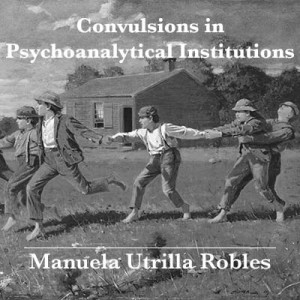
Monday Jun 07, 2021
Monday Jun 07, 2021
In this episode, Manuela Utrilla Robles will tell us about Convulsions in Psychoanalytic Institutions, from the lowest of human passions created by group relationships between psychoanalysts, to the highest of scientific activities. Her views on institutions include her published works, in which she distances herself from anthropomorphic considerations to propose a working method that places psychoanalysts and psychoanalysis at the centre of convulsions.
Manuela Utrilla Robles has a doctorate in medicine and child psychiatry from the University of Geneva. Professor at several Universities (Switzerland, France, Madrid). Psychoanalytic Association of Madrid: Full Member with teaching duties, Chairperson. Director of the Training Institute, Journal, and Publications. In Europe: Representative of the FEP in FEPAL, co-coordinator of free clinical groups. Honorary Member of the European Society of Psychoanalysis for Children and Adolescents (Paris). At the IPA: European representative of the Board. Chair of a Sponsoring Committee and member of several Committees.
She has written 20 books and collaborated in many others, and is the author of more than 100 scientific articles.
LInk to the paper https://drive.google.com/file/d/18LMky_m03bExrMfB5pOPzf2gETMUOINp/view?usp=sharing
This episode is available also in Spanish
Snap the Whip (1872), Winslow Homer. Courtesy Met Museum, New York.
In Tribute to Manuela Utrilla Robles
On February the 4th, left us, with great pain in the hearts of those who knew and treated her, Manuela Utrilla Robles, a training psychoanalyst from the Madrid Psychoanalytic Association. A well-known analyst in Spain and perhaps much more internationally, Manuela spoke and her brilliant and always inspiring words transported us directly to everything that is done with love and passion properly understood. Great connoisseur of the unfathomable depths of the human soul, Manuela also knew the depths of the institutions as she left us written in one of her latest works that we published in the IPA Podcast "Convulsions in psychoanalytic institutions". I would like to leave constancy of the last words that she wrote to me and that I believe contain in an enigmatic and condensed way her idea of a life “worth living”:
“When force becomes art, enclosed in a sentence that contains a word, when the word encloses art, at the right moment where you are. There, you can find yourself. Do not forget it!"
We will never forget you Manuela! Your words and your joy will remain alive in our hearts!
Ana Martin Solar, IPA Podcast Team Member
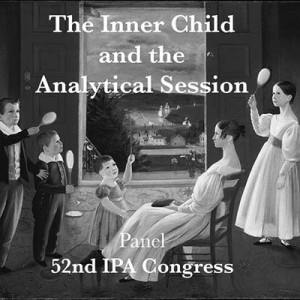
Monday May 31, 2021
Monday May 31, 2021
In the personality structure, there are always some child components, not only as the roots of personality but as active elements at any time. This panel shows some vicissitudes in working with the inner child in the analytical session. Three analysts from different regions and traditions will offer clinical vignettes and theoretical reflections on the subject.
Chair Abel Fainstein, Argentina
PresentersMelinda Gellman, United StatesSérgio Lewkowicz, BrazilAntonio Pérez-Sánchez, Spain
Please visit http://www.ipa.world/theinfantileonline to explore the extensive program and to register. The 52nd IPA Congress will be held online from July 21st to August 1st, and by visiting our program you can set your schedule to suit your personal time zone.
Abel Fainstein MD. Psychiatrist. Mag. in Psychoanalysis. Full Member, Training Analyst and former President of the Argentine Psychoanalytical Association. Former President of FEPAL. Former member of the IPA Board and Ex Com. Member of the Institutional Issue Committee and Advisor of the IRED. Konex Award in Psychoanalysis 2016. Private Practice. Supervisor. Professor at the Angel Garma Institute of APA and at the Universidad del Salvador, Buenos Aires. wwwabelfainstein.com.
Melinda Gellman is a graduate and faculty at New York University Postdoctoral Program in Psychoanalysis and Psychotherapy; faculty at the Institute for Contemporary Psychotherapy in New York City; and adjunct faculty at Austin Riggs Center in Stockbridge, Massachusetts.
Sergio Lewkowicz is training and supervising psychoanalyst of the Porto Alegre Psychoanalytic Society (SPPA). He was the Scientific Director of the Latin American Psychoanalytic Federation (FEPAL). He is professor and supervisor for psychoanalytic psychotherapy in the Psychiatry Department of the Medical School of the Federal University of Rio Grande do Sul. He was president and chair of the Institute of the Porto Alegre Psychoanalycal Society where he teaches regularly in a weekly basis. He was member of the Programme Committee of the 43rd Congress in New Orleans (2004) where he was the plenary session discussant of the Keynote Papers. He is a former member of the Publications Committee of the IPA (2001-2009), former member of the website task force of IPA (2012-2014). He is former Latin American Deputy Editor of the International Journal of Psychoanalysis and former Editor of the Psychiatry Journal of Rio Grande do Sul. He has edited and published several books and articles.
Antonio Pérez-Sánchez is a psychiatrist, training and supervising analyst at the Spanish Psychoanalytical Society (SEP). Past president of SEP (2008–2011). He is the author of five books. His last two books are The Psychotic Organization of the Personality (2018) and Interview and Indicators in Psychoanalysis and Psychotherapy (2019, 2ª Edition in Spanish, and in English in 2014). He is chair of the Sponsoring Committee of the IPA for the Portuguese Study Group, Nucleo Portuguese de Psicoanalisi, and member of the European team of the IPA-Interregional Encyclopedic Dictionary.
The Children of Nathan Starr (1835) Ambrose Andrews. Courtesy Met Museum, New York.
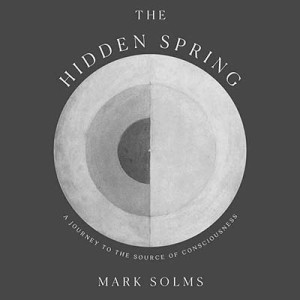
Sunday May 23, 2021
Sunday May 23, 2021
In today’s episode, Mark Solms generously summarizes his latest book “The Hidden Spring: A Journey to the Source of Consciousness” and highlights -in ten clear principals- his thoughts. He shows us how the source of consciousness is deeply bound up with our affects, and traces the key concepts of Psychoanalysis in light of the most recent neuroscientific discoveries. In this work he not only unveils those experimental confirmations that Freud himself hoped for since the beginning of his theories, but also arrives -with an admirable clarity- to specify some evolutionary junctions for the current psychoanalytic models.
Mark Solms is a South African psychoanalyst and neuropsychologist who is known for his discovery of the brain mechanisms of dreaming and his use of psychoanalytic methods in contemporary neuroscience. He holds the Chair of Neuropsychology at the University of Cape Town and Groote Schuur Hospital in the Departments of Psychology and Neurology, and was the President of the South African Psychoanalytical Association. He is also Research Chair of the International Psychoanalytical Association (since 2013), he founded the International Neuropsychoanalysis Society in 2000 and was a Founding Editor of the journal Neuropsychoanalysis. He is is also Director of the Arnold Pfeffer Center for Neuropsychoanalysis at the New York Psychoanalytic Institute, as well Director of the Neuropsychoanalysis Foundation in New York, a Trustee of the Neuropsychoanalysis Fund in London, and Director of the Neuropsychoanalysis Trust in Cape Town.
REFERENCES
Solms, M. (2021) Revision of drive theory. Journal of the American Psychoanalytic Association (JAPA)
Solms, M. (2020) New project for a scientific psychology: General scheme. Neuropsychoanalysis 22:5-35
To contact the author directly please email him at mark.solms@neuropsa.org
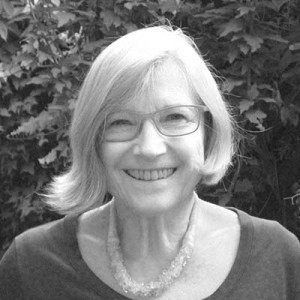
Monday May 17, 2021
Monday May 17, 2021
In this episode, Angelika Staehle, current chair of the IPA Psychoanalytic Education Committee, presents the approach and results of their new project “Meetings of Societies on Education“. The project is an innovative response of the IPA to the need for a means of implementing a collegial quality enhancement of psychoanalytic education as an alternative to oversight. The goal is to enhance creative self-reflection within and among Institutes on what we want to transmit to the newer generations of psychoanalysts. PEC will continue these meeting of Societies as a permanent offering to all IPA Component Societies.
Angelika Staehle is a Clinical psychologist, Training Analyst for Child-, Adolescent- and Adult Psychoanalysis (DPV /IPA) and for Group-Analysis (GAS/London, D3G). For many years member of the executive board and director of training for adult- and child analysis in the DPV. Currently, chair of the psychoanalytic education committee/IPA. She works in full private psychoanalytic practice with children, adolescent and adults, individually and in groups.
Her publications focus on: Psychoanalytic technique, especially disturbances of symbolisation of children, adolescents and adults, integration of adult- and child- analysis, group processes in Institutions, psychoanalytic education.
Link to the paper in English, German, French and Spanish.
This episode is available also in German
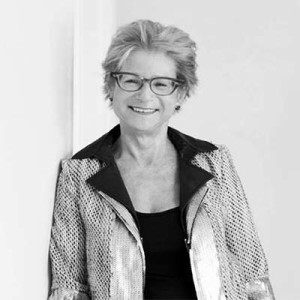
Monday May 10, 2021
Monday May 10, 2021
Martina Burdet is a training analyst for the Psychoanalytic Association of Madrid and member of the Psychoanalytic Society of Paris. She is the Chief Executive of the e-journal Psychoanalysis.today, former General Secretary of the EPF and the Current Chair of its Working Group on Remote Analysis.
Her book, Love in the Time of the Internet – Do you l@ve me or do you follow me? was written as a response to the increasing number of patients she has seen over recent years who are experiencing problems in their lives – problems that seem to come at the crossroad between the intrapsychic world and the social environment, digital revolution and virtual reality. She wrote the book as a psychoanalyst for psychoanalysts, but it is also intended for a wider public interested in psychoanalysis. In it, she combines psychoanalytic theory with what she calls ‘Ordinary Stories’; that is, stories of patients who describe how they can – or actually, how they cannot – love in the time of the Internet.
This episode is available also in French

Tuesday May 04, 2021
Tuesday May 04, 2021
The work proposes that the contemporary analyst can and should listen to the varied languages of man and, with a specific technical stance, help the patient, through intermediary moments, to think what was unthinkable, to name what was unnameable. It departs from listening to the language of the non-symbolic, which depends on the analyst’s capacity for reverie and their capacity to metaphorise the patient’s reports, to propose instead the construction of symbolic forms through the use of scaffolding for thinking. This is what permits the historicising, the placing of the patient’s life in a narrative. If this does not take place, there is an eternal presentification of the traumatic emotional experience, resulting in the “murder of time” (Green).
Ruggero Levy is a Psychoanalyst, Full Member and Training Analyst of the Psychoanalytic Society from Porto Alegre (SPPA), Brasil; Former President of SPPA; Chair of the IPA Working Parties Committee; Keynote paper/Major Lecture at the 50th IPAC in Buenos Aires, 2017; Ex-IPA Board Member from 2011-2013 and from 2013-2015; Professor and supervisor of the Federal University of Rio Grande do Sul in the Courses of Specialization on Children, Adolescent and Adult Psychotherapy; Author of many book chapters and scientific papers published in regional, national and international psychoanalytic reviews.
This episode is available also in Portuguese
Ruggero Levy (2019) The polyphony of contemporary psychoanalysis: the multiple languages of man, The International Journal of Psychoanalysis, 100:4, 656-673, DOI: 10.1080/00207578.2019.1636251
Pair of Transverse Flutes, mid-18th century, Johann Wilhelm Oberlender (the Elder) Courtesy Met Museum, New York.
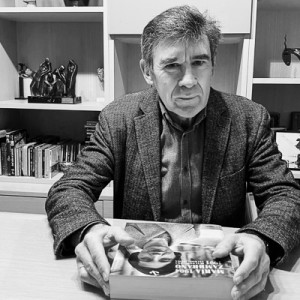
Tuesday Apr 27, 2021
Tuesday Apr 27, 2021
In this text, the author states that in clinical work with patients, the narcissistic problem places the psychoanalyst's sensitivity in the foreground. He addresses a conceptualization of narcissism and the sexualization of the ego, following the postulations of André Green. Sabin Aduriz also develop how the narcissistic polarization of the instinctual drives affects the splitting of the currents of tenderness and sensuality, as well as in the role of the primal scene. Finally, he addresses the function of the ideal and the validity of narcissism in contemporary culture.
Sabin Aduriz is a Psychoanalyst. He is a training analyst of the Madrid Psychoanalytic Association (APM), taking charge of teaching and training at the institute of the APM. He graduated in Psychology and Pedagogy. At the outset of his career, he worked at the Mental Health Center in San Fernando de Henares (Madrid) and for 10 years in a high school environment, working especially with adolescents within the FUHEM Schools network, a independent, non-profit association dedicated to promoting social justice, environmental sustainability and social action through education.
He has served as Director of the APM Institute and, therefore, of its Teaching Committee.
He has given lectures and courses on "Narcissism today" and on “Clinical treatment of narcissism in adolescence." He also has published several articles in the APM journal, including one titled Repetition and Creation: Narcissism and Drive Life.
Link to the paper https://drive.google.com/file/d/1oUoq_qjIi6LbD7DFCNDXdXqTLmsQMN_8/view?usp=sharing
This episode is available also in Spanish
"Julie Le Brun (1780–1819) Looking in a Mirror", by Elisabeth Louise Vigée Le Brun. Courtesy Met Museum, New York.
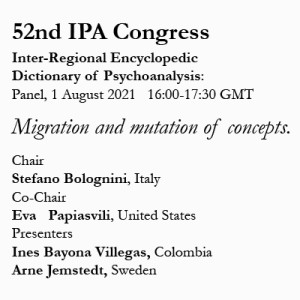
Tuesday Apr 20, 2021
Tuesday Apr 20, 2021
Speculum Romanae Magnificentiae: Portraits of the Wives of Emperors. Courtesy Met Museum, New York
Focusing on the concepts of “SELF” and ‘INTERSUBJECTIVTY”, the panelists Stefano Bolognini (Chair of IRED), Arne Jemstedt (Co-Chair for Europe), Ines Bayona (Co-Chair for Latin America) and Eva Papiasvili (Co-Chair for North America) will elucidate how the concepts change (mutate) as they cross (migrate) among different psychoanalytic and socio-cultural geographies.
ChairStefano Bolognini, Italy
Co-ChairEva Papiasvili, United States
PresentersInes Bayona Villegas, ColombiaArne Jemstedt, Sweden
Please visit http://www.ipa.world/theinfantileonline to explore the extensive program and to register. The 52nd IPA Congress will be held online from July 21st to August 1st, and by visiting our program you can set your schedule to suit your personal time zone.

Wednesday Apr 14, 2021
Wednesday Apr 14, 2021
In today’s episode Maria Teresa Hooke (Past President of the Australian Psychoanalytical Society and past Chair of the IPA Committee on New Groups) welcomes Timothy Keogh (Current President of the Australian Psychoanalytical Society), who presents a modified version of a commentary (published in the inaugural issue of the International Journal of Forensic Psychotherapy [2019]) on Neville Symington’s classic paper, The Response Aroused by the Psychopath (1980), to highlight Neville’s lesser known contribution to forensic psychoanalysis and to present a view on this concept from the perspective of a contemporary psychoanalyst.
Dr Timothy Keogh is a psychoanalyst, forensic psychologist and couple and family psychotherapist. He has had thirty years’ experience working with offenders in a variety of clinical and executive roles in both Juvenile Justice and Corrective Services in Australia, including State-Wide Director of Inmate Services and Programs. A member of the Mental Health Tribunal (Civil and Forensic), he also recently led the establishment of the Australian Forensic Psychotherapy Association, of which he is the inaugural President.
Dr Keogh also has a strong interest and commitment to indigenous issues and is on the Scientific Advisory Board of CASSE, a psychoanalytically-oriented charity that provides an Aboriginal program in Central Australia. He also had a key role in establishing and is current President of a Psychoanalytic Charity Penthos, immediate past vice president (English) of the International Association of Couple and Family Psychoanalysis (IACFP), a member of the IPA Committee on Couple and Family Psychoanalysis and Vice President of the Australasian Confederation of Psychoanalytic Psychotherapies. He is also a Senior Lecturer at the Sydney Medical School (University of Sydney) and a visiting Professor to the Tonji Medical School (University of Wuhan) in China. He authored Through a Glass Darkly (2012) and is senior editor of Psychoanalytic Approaches to Loss (2018) and Interpretation in Couple and Family Psychoanalysis (2019).
Link to the paper https://drive.google.com/file/d/1QUDNxu-M0JWuav_5G7O1-wzv0i9n98XI/view?usp=sharing
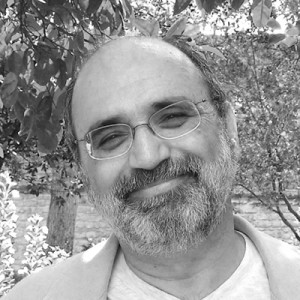
Wednesday Apr 07, 2021
Wednesday Apr 07, 2021
Freud and Winnicott have expressed the opinion that if their psychoanalytic ideas are correct, then poets and writers will have thought of them first. Dominique Scarfone, who has developed the concept of “actual time” on metapsychological grounds, concurs with their opinion by showing that variants of “actual time” can be found in the works of the American poet W. S. Merwin, the British writer Virginia Woolf, and the German philosopher Walter Benjamin. Their poetry, literary prose, and philosophy, respectively, are shown to resonate with the time dimension of the psychoanalytic process.
Dominique Scarfone, M.D., is a training and supervising analyst in the Canadian Psychoanalytic Society & Institute (Montreal French Branches) in the process of retiring from his practice of more than 40 years. A former full professor at the Université de Montréal, he was for many years an Associate Editor of the International Journal of Psychoanalysis. He is presently chairing the Executive committee of the International Journal’s College.
The author of numerous journal articles and book chapters, he published a number books, among which Laplanche: An introduction and The Unpast. The Actual Unconscious, both published in 2015 in New York by UIT-The Unconscious in Translation. He co-edited with Howard B. Levine and Gail Reed. Unrepresented States and the Construction of Meaning (Karnac, 2013). A new book is in preparation : The Reality of the Message. Seduction, trauma and transference. (provisional title) to be published by UIT.
Link to the text https://drive.google.com/file/d/1rT7NYmsJ78Lru4-I4lR1_SOyzevC9SGr/view?usp=sharing
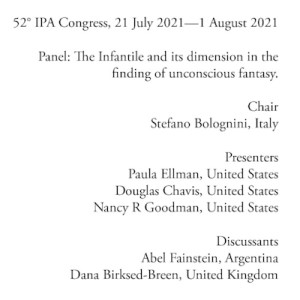
Wednesday Mar 31, 2021
Wednesday Mar 31, 2021
Figure of youthful Eros, Freud Museum London.
"The Infantile and its dimension in the finding of unconscious fantasy".S. Bolognini, P. Ellman, D. Chavis, N. R. Goodman, A. Fainstein, D. Birksted-Breen.
52° IPA Congress22 July 2021 20:00-21:30 GMTEnglish - Panel
The infantile is always present, in the child, the adult, dreams and in waking life. The infantile appears in transference/countertransference and also is found when societal trauma is active. This panel looks closely at the infantile in forces of the mind, in unconscious fantasy, in development and in the treatment relationship.
M.D. and Psychiatrist, Stefano Bolognini has been President of the Italian Psychoanalytical Society and then President of the International Psychoanalytical Association (2013-2017). He lives and works in Bologna (Italy), and is supervisor of Public Psychiatric Services.For 10 years (2002-2012) he was member of the European Editorial Board of the International Journal of Psychoanalysis; he is Honorary Member of the New York Contemporary Freudian Society (CFS), of the Los Angeles Institute and Society for Psychoanalytic Studies (LAISPS); from 2013, member of the Advisory Board of the International Psychoanalytic University of Berlin (IPU); founder (2014) and Chair (from 2016) of the IPA Inter-Regional Encyclopedic Dictionary of Psychoanalysis (IRED).His main scientific interests regard Psychoanalytic Empathy, Interpsychic Dimension, Institutional Organizations and Issues, Educational Process, Theory of Technique.Bolognini has published 250 psychoanalytic papers in international books and reviews.Among his books, translated in several languages: Like Wind, Like Wave (Other Press, 2006)]; Psychoanalytic Empathy (Free Association, 2004); Secret Passages. Theory and Technique of the Interpsychic Relations, Routledge, 2010); “Das Ereignis der Einfuehlung. Zwei Psychoanalytische Reflexionen” (Verlag Turia+Kant, Wien-Berlin, 2017).His last book “Vital Flows between Self and Not-Self” is in publication by Routledge (London).
Doug Chavis is a Training and Supervising Analyst at the Washington Baltimore Institute for Psychoanalysis. He is in the private practice of child, adolescent and adult psychoanalysis. He recently published The Construction of Sadomasochism: Vicissitudes of Attachment and Mentalization, IJP 2018.
Paula L. Ellman, Ph.D., ABPP. is a training and supervising analyst in the Contemporary Freudian Society, Washington DC and the Washington Baltimore Center for Psychoanalysis. She is Overall Chair of the IPA Committee on Women and Psychoanalysis and Chair of the IPA Intercommittee Work Group on Prejudice and Race. She is on the Editorial Board of the International Journal of Psychoanalysis and is a Board Member of the North America Psychoanalytic Confederation (NAPsaC). Recent publications include: Finding Unconscious Fantasy in Narrative, Trauma, and Body Pain: A Clinical Guide (with N. Goodman, Routledge, 2017) and The Courage to Fight Violence against Women: Psychoanalytic and Multidisciplinary Perspectives (with N. Goodman, Karnac, 2017). She has a private practice in psychotherapy and psychoanalysis in North Bethesda, Maryland.
Nancy Goodman is a training and supervising analyst with the Contemporary Freudian Society in Washington D.C. and the IPA. She publishes about trauma, witnessing, female development, sado-masochism, and enactment processes. Finding Unconscious Fantasy is a major theme in Nancy's work found in the book, Finding Unconscious Fantasy in narrative, trauma and body pain, edited with Paula Ellman.
Dana Birksted-Breen, Ph.D., is a training and supervising psychoanalyst of the British Psychoanalytical Society. Former Editor of the New Library of Psychoanalysis books, she is currently Editor-in-Chief of the International Journal of Psychoanalysis. Her latest book is The Work of Psychoanalysis, Sexuality, Time and the Psychoanalytic Mind New Library of Psychoanalysis, Routledge 2016. Her most recent paper “Pathways of the Unconscious: When the Body is the Receiver/Instrument” was published in the Centenary issue of the International Journal of Psychoanalysis (issue 6, 2019). She conceived and co-curated an exhibition at the Freud Museum, London, “The Enigma of the Hour, One Hundred Years of Psychoanalytic Thought”( June- August 2019) and a short film about it https://vimeo.com/383978034. She is the editor of Translation/Transformation, 100 Years of the International Journal of Psychoanalysis, New Library , Routledge 2021, nominated for the Gradiva Prize 2021.
Abel Fainstein MD. Psychiatrist. Mag. in Psychoanalysis. Full Member, Training Analyst and former President of the Argentine Psychoanalytical Association. Former President of FEPAL. Former member of the IPA Board and Ex Com. Member of the Institutional Issue Committee and Advisor of the IRED. Konex Award in Psychoanalysis 2016. Private Practice. Supervisor. Professor at the Angel Garma Institute of APA and at the Universidad del Salvador, Buenos Aires. wwwabelfainstein.com.

Monday Mar 29, 2021
Monday Mar 29, 2021
The present paper suggests the existence of two axes of human development: the axis of dependence, associated with human connectedness and the axis of addiction, associated with using inanimate objects to fulfill one’s needs. A crucial role of the analyst who treats people with addictions is to promote movement towards the axis of dependence.
Jose Alberto Zusman, M.D, is Chair of the IPA Subcommittee on Addiction; Post- Doctor on Addiction mentored by Edward Khantzian (Harvard); Full Member and Professor at the Psychoanalitic Society of Rio de Janeiro (SPRJ); PhD on Psychoanalysis mentored by Eustachio Portella Nunus (Federal University of Rio de Janeiro (UFRJ); Professor and Supervisor of Psychoanalysis at the Psychiatric Residency programme at the Institute of Psychiatry (UFRJ).
This episode is available also in Portuguese
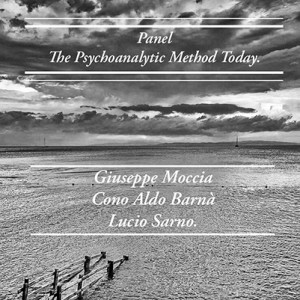
Monday Mar 22, 2021
Monday Mar 22, 2021
In this episode we present a Panel that took place recently in the Centro di Psicoanalisi Romano of the Italian Psychoanalytical Society. The participants are Giuseppe Moccia, chair of the Panel, Cono Aldo Barnà and Lucio Sarno. The theme that is developed concerns the variations of the psychoanalytic method in relation both to the new pathologies and to the extensions of the analytic treatment to new contexts, such as the family, couples and groups. The changes caused by the new conditions due to the Covid 19 pandemic are also considered.
Giuseppe Moccia is a Medical Doctor, Psychiatrist, and Training Analyst of the Italian Psychoanalytical Society and the International Psychoanalytic Association. He has long been a supervisor at the psychiatric services of Roma and Ancona, President and Scientific Secretary of the Centro di Psicoanalisi Romano and Coordinator of the Psychoanalysis and Neuroscience Committee of the Italian Psychoanalytical Society. He has written numerous articles in Italian and international journals on the issues of patients with severe pathology, the intersubjective approach as well as the relationship between psychoanalysis and neuroscience.This text is read by Diego Francisco Andrade.
link to his paper https://docs.google.com/file/d/11laEgx6cHmboy-ZekwlwzP-I7TiScPxm/edit?usp=docslist_api&filetype=msword
Cono Aldo Barnà is a physician, psychiatrist and Training Analyst for the Italian Psychoanalytical Society and the International Psychoanalytic Association. He has worked in psychiatric centers of the Italian Health System and has been supervisor of many socio-health teams in various Italian cities. He was President of the Centro di Psicoanalisi Romano and Vice President of the Italian Psychoanalytical Society. He is co-author of the "Unconscious" entry in the Inter-Regional Encyclopedic Dictionary of the International Psychoanalytic Association and books on psychoanalysis. Since the 1970’s he has produced many articles on psychiatry and psychoanalysis.This text is read by Diego Francisco Andrade.
link to his paper https://docs.google.com/file/d/1nWE7gfvq8bqRb_ToY_yyZ4DUkvzRI2eZ/edit?usp=docslist_api&filetype=msword
Lucio Sarno is Professor Emeritus of Clinical Psychology and Psychotherapy, Faculty of Medicine and Surgery at Vita-Salute San Raffaele University in Milan, Italy. He was the Chief of the Service of Clinical and Health Psychology at San Raffaele Hospital in Milan. He now directs the Counseling Service and the Centre for the Promotion of Psychological Wellbeing and Health Protection at the University Vita-Salute San Raffaele in Milan. He is a Training Analyst of Italian Psychoanalytical Society (SPI) , a Full Member of the International Psychoanalytical Association (IPA), and a “qualified expert” in the analysis of children and adolescents. He has held numerous institutional positions.He founded and was President of the Italian Institute of Group Psychoanalysis.This text is read by Adam Muri-Rosenthal.
link to his paper https://drive.google.com/file/d/1Am6djcCgdsG3HBsgdTWdm-J1gZ-ezWuq/view?usp=drivesdk
Key Takeaways:[0:34] Giuseppe Moccia[6:38] Cono Aldo Barnà[42:34] Lucio Sarno
This episode is available also in Italian
Music:Chopin Etudes, Op. 25Żołnowski Kwartet Japoński II - Complete Performance. Maciej Żołnowski.

Saturday Mar 13, 2021
Saturday Mar 13, 2021
Michael Parsons is a Training Analyst of the British Psychoanalytical Society and a member of the French Psychoanalytic Association. After a degree in classical literature, ancient history and philosophy, he became a doctor and specialised in psychiatry. He trained as an analyst at the Institute of Psychoanalysis in London, and worked for thirty years in full-time private analytic practice. He has a particular interest in connections between psychoanalysis and other fields such as art, literature and religion.
He is the author of two books: The Dove that Returns, The Dove that Vanishes: Paradox and Creativity in Psychoanalysis (Routledge, 2000) and Living Psychoanalysis: From Theory to Experience (Routledge, 2014). He is also co-editor of the collected papers of Enid Balint under the title Before I was I: Psychoanalysis and the Imagination. (Free Association, 1993).
His podcast is about the relation between psychoanalysis and the visual arts, literature and music. It draws on his two books, quoting passages from them, and develops some further ideas relating to this theme.
Link to the paper https://drive.google.com/file/d/1Mxt6vyNXnHtk2gyWd694f_8w9mr1R9g1/view?usp=sharing
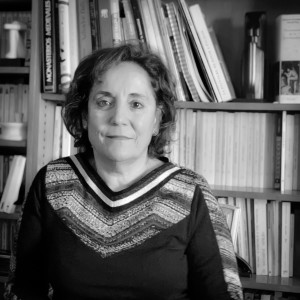
Sunday Mar 07, 2021
Sunday Mar 07, 2021
In this episode, Milagros Cid Sanz reflects on the transitional role of the narcissistic double in the constitution of the subject, considering this transition from the integration of autoerotisms into a unified narcissism, to the full differentiated object relationship in its alterity, and its repercussions on the psychoanalytical cure.
Milagros Cid Sanz is a psychiatrist, psychoanalyst, Full Member and Training Analyst of the Asociación psicoanalítica de Madrid (APM), were she has held various positions, among which we highlight:
- President of the APM (2006-2009)
- Currently, Editor in chief of la revista de psicoanálisis de la Asociación psicoanalítica de Madrid.
At the EPF (European psychoanalytical federation):
Member of the Scientific Committee for the Congress of the FEP
At the IPA (International psychoanalytic association) :
Member of the IPA Outreach Committee as European Representative.
From 2020 Co-chair for Europe of the IPA Ethical Committee.
Conferences and clinical presentations in Spain, Europe, and Latin-America. She is author of more than fifty published works. Psychoanalytical articles, books reviews and psychoanalytical collective books.
Link to the paper https://drive.google.com/file/d/1NW5HyocIQD7BcsIZbTB2SH-TYJ3y2psO/view?usp=sharing
This episode is available also in Spanish

Friday Feb 26, 2021
Friday Feb 26, 2021
Lena Theodorou Ehrlich is a Training and Supervising Analyst at the Michigan Psychoanalytic Institute, visiting faculty at the Denver Psychoanalytic Institute, and Clinical Supervisor at the University of Michigan, Department of Psychiatry. She has maintained a lively practice of psychoanalysis, psychotherapy and supervision in Ann Arbor, Michigan for 30 years. She is internationally recognized for her original contributions to the literature on beginning and deepening analysis and building and maintaining a psychoanalytic practice. Her 2019 paper, Teleanalysis: Slippery slope or rich opportunity? won the 2019 Journal of the American Psychoanalytic Association prize award for excellence in psychoanalytic scholarship and distinguished contributions to the journal. Her book, Psychoanalysis from the Inside Out: Developing and Sustaining an Analytic Identity and Practice is available on Amazon and the Routledge Press website.
email: lenaehrlich@drlenaehrlich.com
PSYCHOANALYSIS FROM THE INSIDE OUT.Developing and Sustaining an Analytic Identity and Practice.
Published July 29, 2020 by Routledge180 Pages
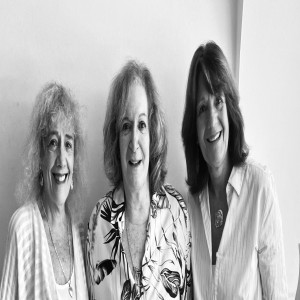
Monday Feb 22, 2021
Monday Feb 22, 2021
Over the last thirty years, there have been significant changes in the structure of families and couples. These include challenges to the traditional family structure, women’s empowerment, a rebellion against the patriarchy and the legitimization of same-sex couples. All of these have brought about a dramatic increase in the diversity of family configurations. In this book, the authors aim to take into account these new configurations and explore new ways of thinking about the links within families, couples and siblings. Their book describes clinical interventions which are based on the link approach, which enables the broadening of the range of classical psychoanalytic resources. The link approach is not content with proposing just one more application of psychoanalysis but seeks to account conceptually for the territorial expansion that has occurred in contemporary psychoanalysis.
The 3 authors are Buenos Aires Psychoanalytical Association Training Analysts and Professors at the Master´s Program in Family and Couple Studies in the University Institute of Mental Health of the Buenos Aires Psychoanalytical Association.
Susana Kuras Mauer, has a Masters in Couples and Families and is an IPA Specialist in Child and Adolescent Psychoanalysis.
Sara Moscona, is a Couples and Families Professor at the University of Buenos Aires.
And Silvia Resnizky was Director of the Master’s Program in Family and Couple Studies (2013 - 2017), an IPA Board member (2017-2021) and IPA Executive Committee member (2019-2021).
Psychoanalytic Work with Families and Couples:Clinical Perspectives on Suffering
Published October 15, 2019 by Routledge
158 Pages 16 B/W Illustrations
This episode is available also in Spanish
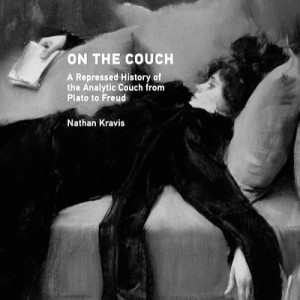
Monday Feb 15, 2021
Monday Feb 15, 2021
Nathan Kravis is Clinical Professor of Psychiatry and Associate Director of the DeWitt Wallace Institute of Psychiatry: History, Policy and the Arts at Weill Cornell Medical College in New York. He is also a Training and Supervising Analyst at the Columbia University Center for Psychoanalytic Training and Research, and author of On the Couch: A Repressed History of the Analytic Couch from Plato to Freud (MIT Press, 2017). He is in private practice in New York City.
In On the Couch, Dr Kravis explores the social history of recumbent posture and delves into its symbolism and representations from classical antiquity to the present. He then situates current analyst ambivalence about the couch within this complex history.
Since its publication in 2017, On the Couch has been translated into German, Turkish, and Russian, and received a Gradiva Award in 2018.
His other recent publications include “The analyst’s hatred of analysis” (Psychoanalytic Quarterly, 2013) and “The Googled and Googling analyst” (Journal of the American Psychoanalytic Association, 2017).
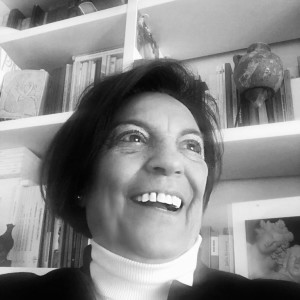
Monday Feb 08, 2021
Monday Feb 08, 2021
In her work, Teresa Olmos de Paz reflects on some questions and concepts in contemporary psychoanalysis. She emphasizes that the aim of those reflections is to share some ideas among psychoanalysts, because nowadays, no analyst alone can give a global idea of what is considered problematic for contemporary psychoanalysis. Likewise, she highlights the importance of clarifying the concepts facing the diversity of enforced theoretical models in current psychoanalysis.
Teresa Olmos de Paz was born in Córdoba, Argentina. She carried out her psychoanalytic training in Buenos Aires in the 1970’s and has lived in Spain since 1980. She is a training analyst at the Asociación psicoanalítica de Madrid. She has been APM’s president from 2017 till 2019, is a professor at the Institute of Psychoanalysis and was its Director from 2001 to 2003. She is a member of the Forum of Psychoanalysis with adolescents of the European Federation of Psychoanalysis. Among her publications, it should be noted: Structures and / or border states in children, adolescents and adults, together with Carlos Paz and Maria Lucila Pelento. She has published in national and foreign journals, highlighting the International Journal of Psychoanalysis. Together with Carlos A. Paz, she obtained the first prize “Annual Book of Psychoanalysis 1990” with the work: Adolescence and borderline pathology: Characteristics of the relevant psychoanalytic process (Int. J. Psycho-Anal.). She has edited and is co-author of “Los huéspedes del yo. Las identificaciones y desidentificaciones en la clínica psicoanalítica. She is also the Editor and co-author of the book: Los Encuentros de Psicoanalistas de Lengua Castellana.
This text will be read by Andy Cohen and you can listen to it also in the original Spanish, by the voice of the author herself.
Link to the paper https://drive.google.com/file/d/1ft2CkG8BrMa4bUo9zbegR_6ntU3b1pOQ/view?usp=sharing
This episode is available also in Spanish

Monday Feb 01, 2021
Monday Feb 01, 2021
In today's episode Jacqueline Schaeffer presents us with a text: The riddle of the repudiation of femininity: the scandal of the feminine dimension, a theme that she deployed at length in her book Le refus du féminin (la sphinge et son âme en peine), published by Presses Universitaires de France in 1997, republished in 2013, with an afterword by René Roussillon, translated The Universal Refusal by Karnac Books in 2011.
Jacqueline Schaeffer is an honorary training analyst of the Paris Psychoanalytic Society. She was a counselor in the offices of Michel Fain, Augustin Jeanneau and André Green from 1982 to 1989. She was a member of the editorial board of the Revue Française de Psychanalyse and deputy director of the Débats de psychanalyse. She was awarded the Maurice Bouvet Prize for Psychoanalysis in 1987.Jacqueline Schaeffer is the author of numerous collective works and numerous articles in French and foreign journals on the theme of gender and femininity. A filmed interview and her articles can be sent on request: jacqueline.schaeffer1@gmail.com.
Link to the paper https://drive.google.com/file/d/1Qk5WhhraSuo41zJTJsAK22BHsdA40qAQ/view?usp=sharing
This episode is available also in French

Monday Jan 25, 2021
Monday Jan 25, 2021
In this first-of-kind book, senior psychoanalysts from around the world offer personal reflections on their own training, what it was like to become a psychoanalyst, and what they would like most to convey to the candidate of today. With forty-two personal letters to candidates, this collection helps analysts in training and those recently entering the profession to reflect upon what it means to be a psychoanalytic candidate and enter the profession. Letters tackle the anxieties, ambiguities, complications, and pleasures faced in these tasks. From these reflections, the book serves as a guide through this highly personal, complex, and meaningful experience and helps readers consider the many different meanings of being a candidate in a psychoanalytic institute.
Fred Busch, Ph.D. is a Training and Supervising Analyst at the Boston Psychoanalytic Society and Institute. Dr. Busch has published over 70 articles in the psychoanalytic literature, and four books, primarily on the method and theory of treatment. He has been on numerous editorial boards. His work has been translated into 10 languages, and he has been invited to present over 160 papers and clinical workshops nationally and internationally. Dear Candidate was published by Routledge in 2020.
A pre-publication review from Charles Baekeland, I.P.S.O. President-elect:
"It is possible that you will be surprised and educated by what you find in this book. Determination, kinship, wisdom (and some heartbreak) walk hand in hand through its pages with a rousing breadth, unlikely to be available at a single institute. The writers of the letters have been generous with their experience. Agreements emerge: the profound value of personal analysis, free from artificial institutional requirements, and the necessity of steeping oneself in the literature. Another voice is also audible. Readers of Dante will hear: "Retain all hope, ye who enter here––much hardship awaits you, as do human splendors'."
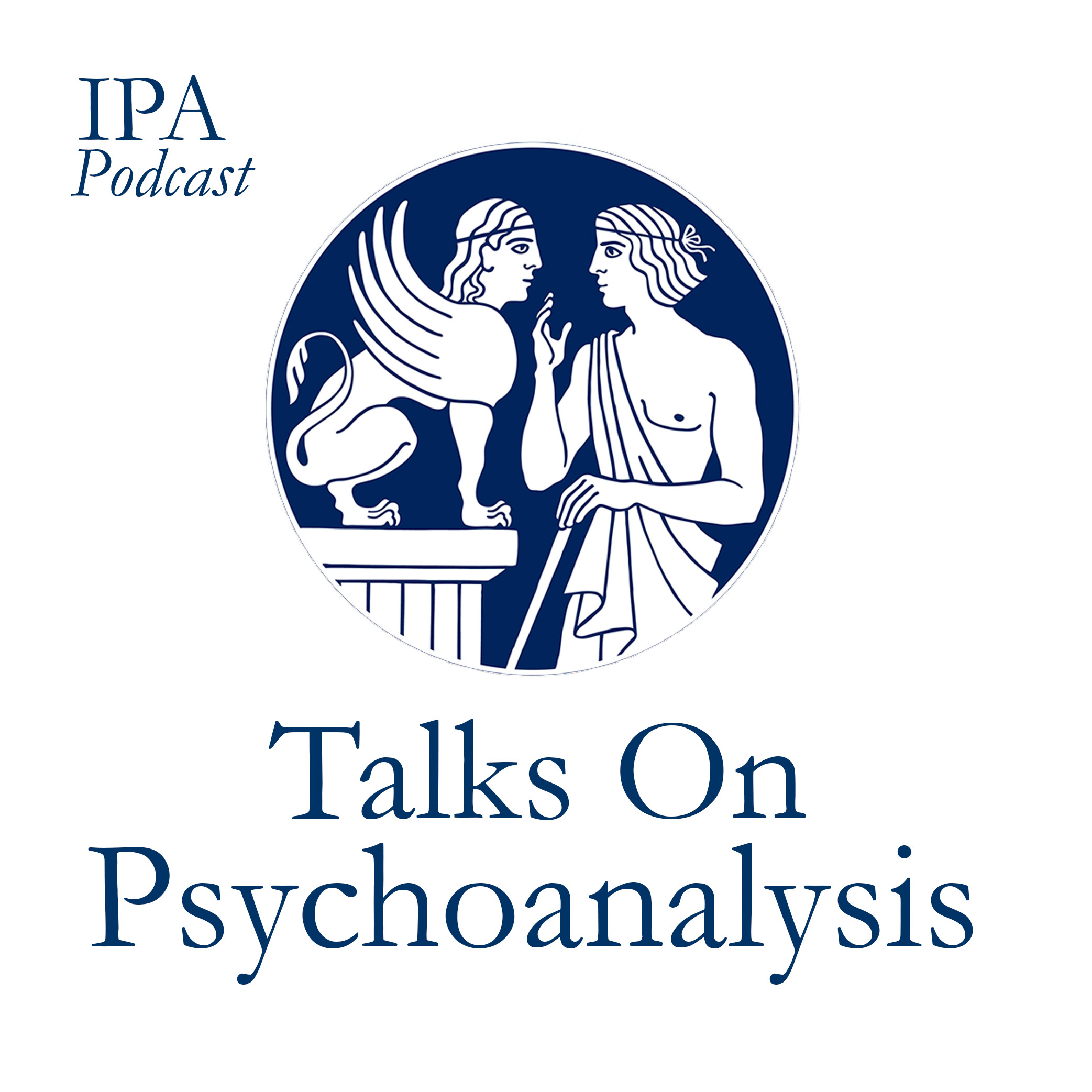
This podcast is produced by International Psychoanalytical Association
Heribert Blass, President
Katy Bogliatto, Vice President
Adela Escardó, Treasurer
Chris Heath, Communications Committee Chair
Gaetano Pellegrini, Outreach Communications Sub-Committee Chair
Florencia Biotti, Podcast Coordinator
For questions and proposals please send an email to ipatalks@ipa.world






